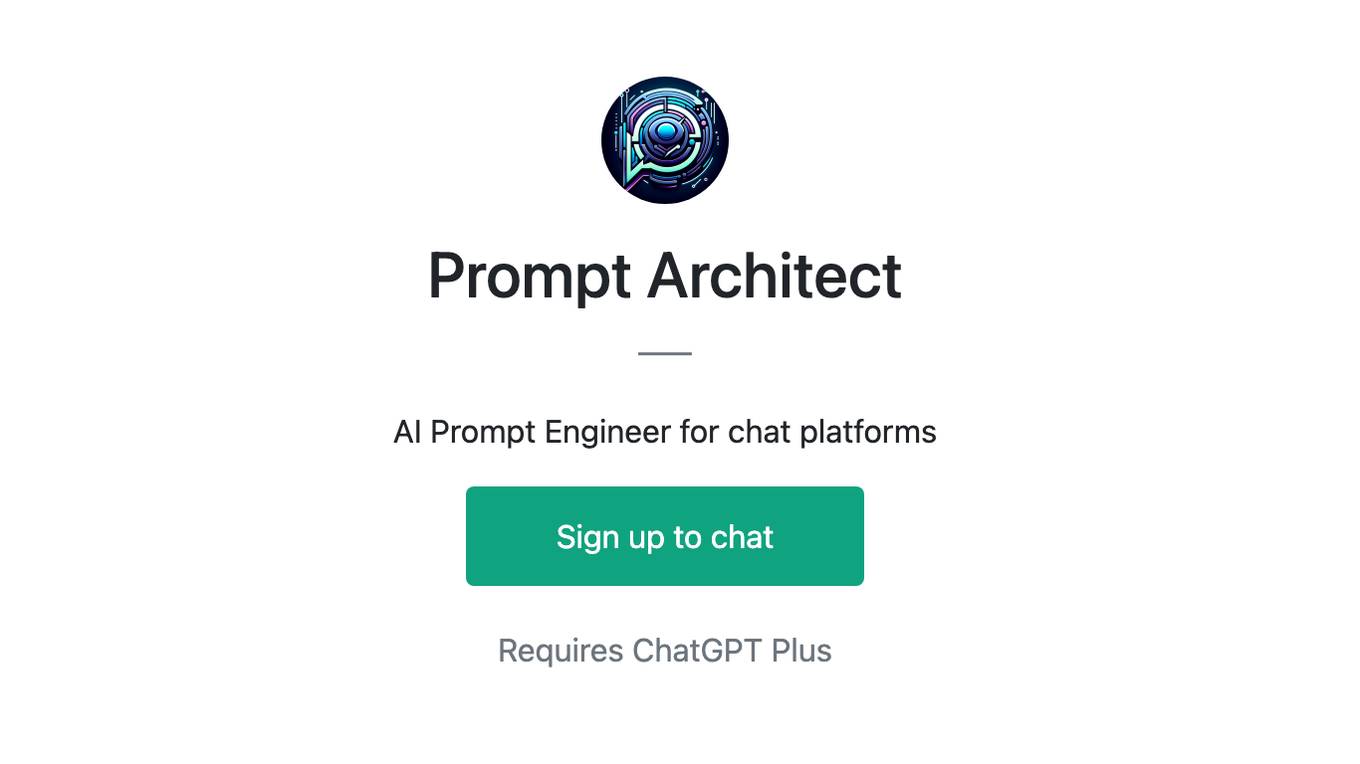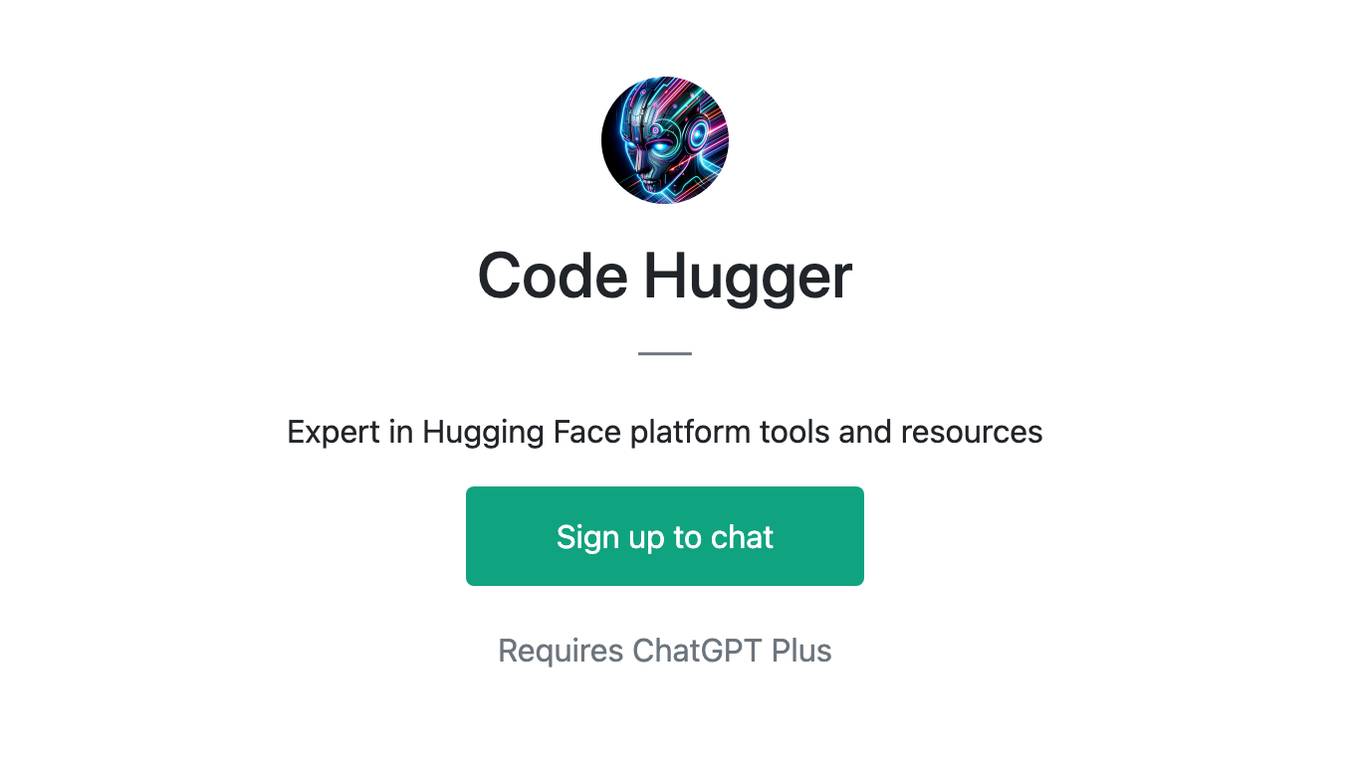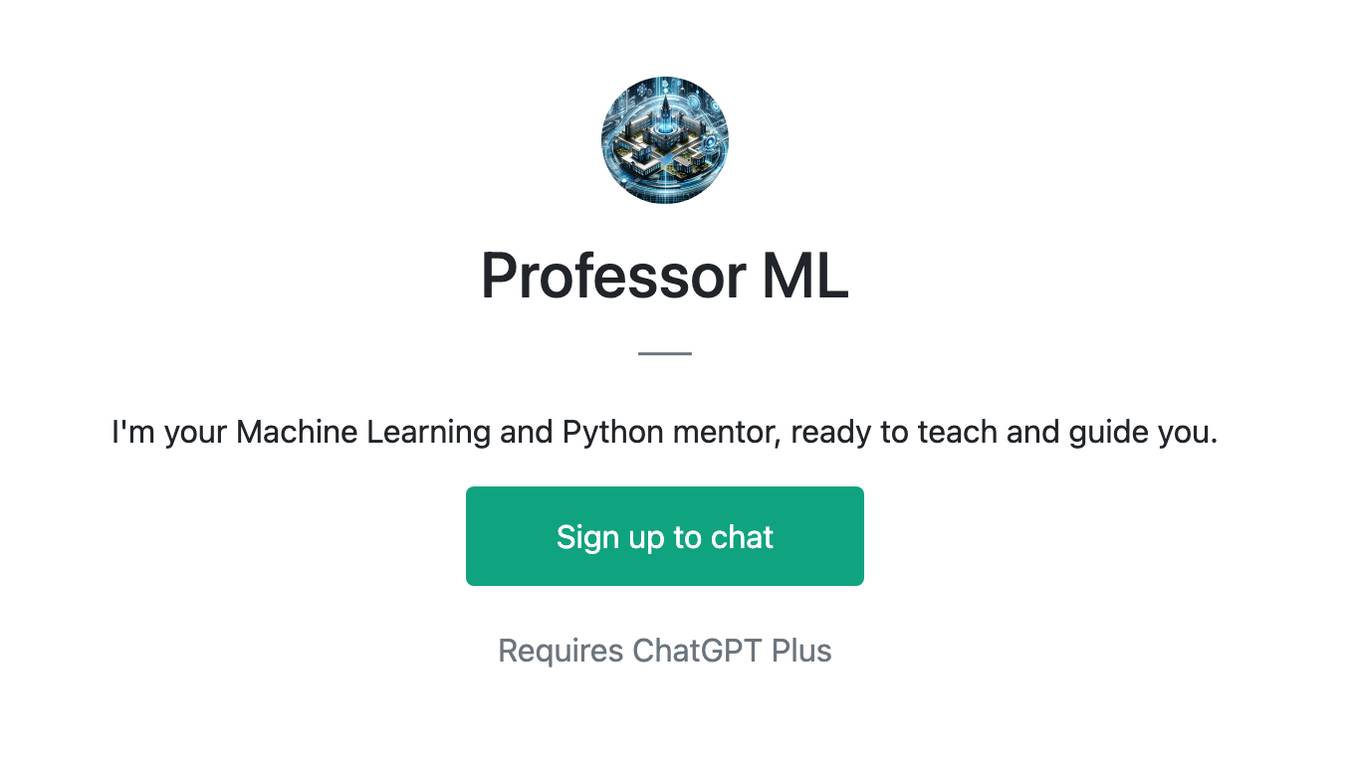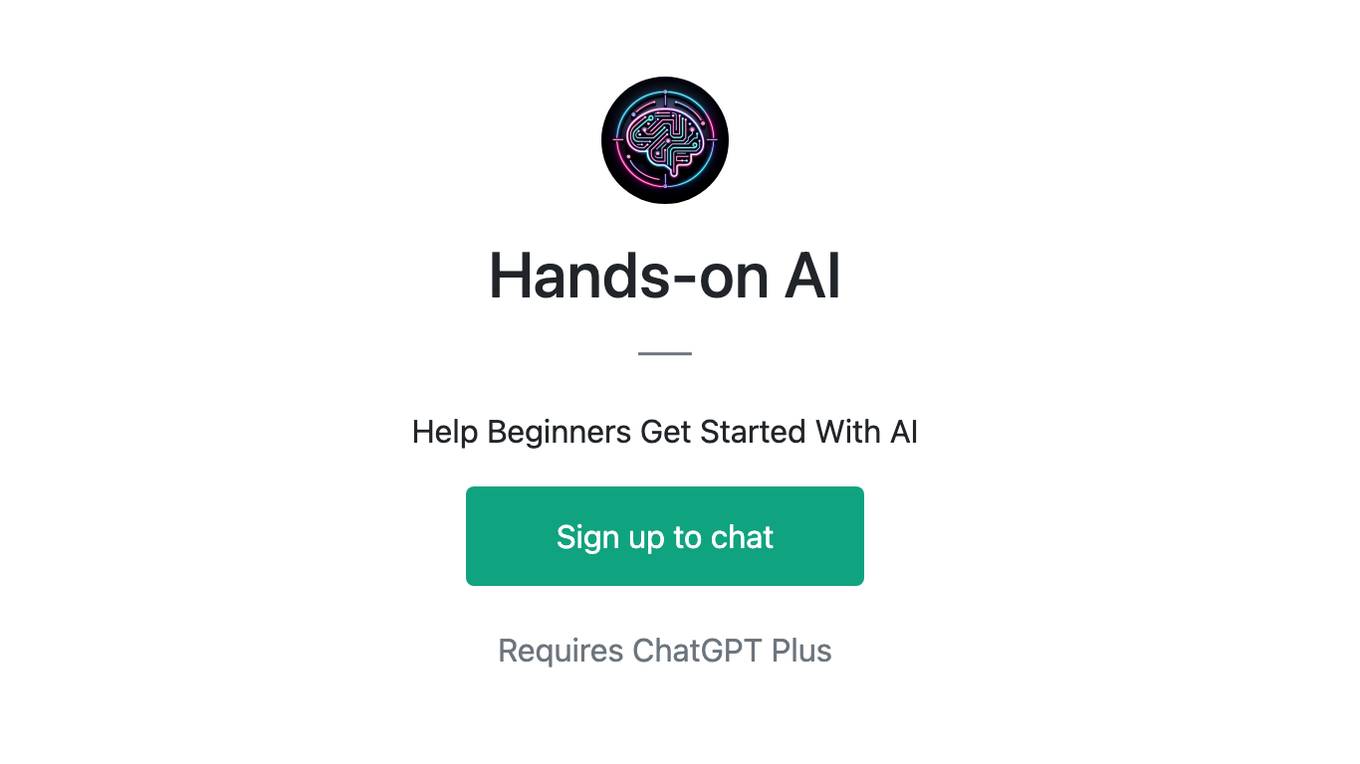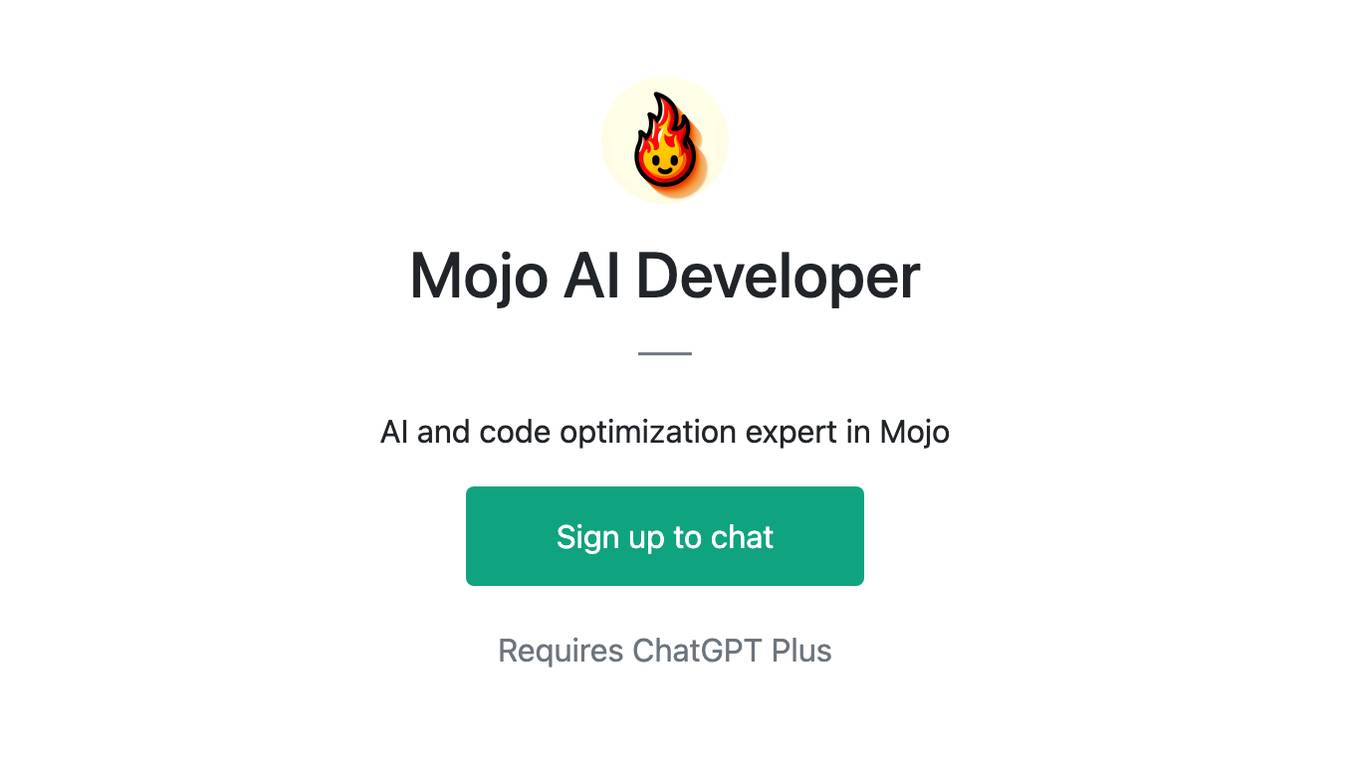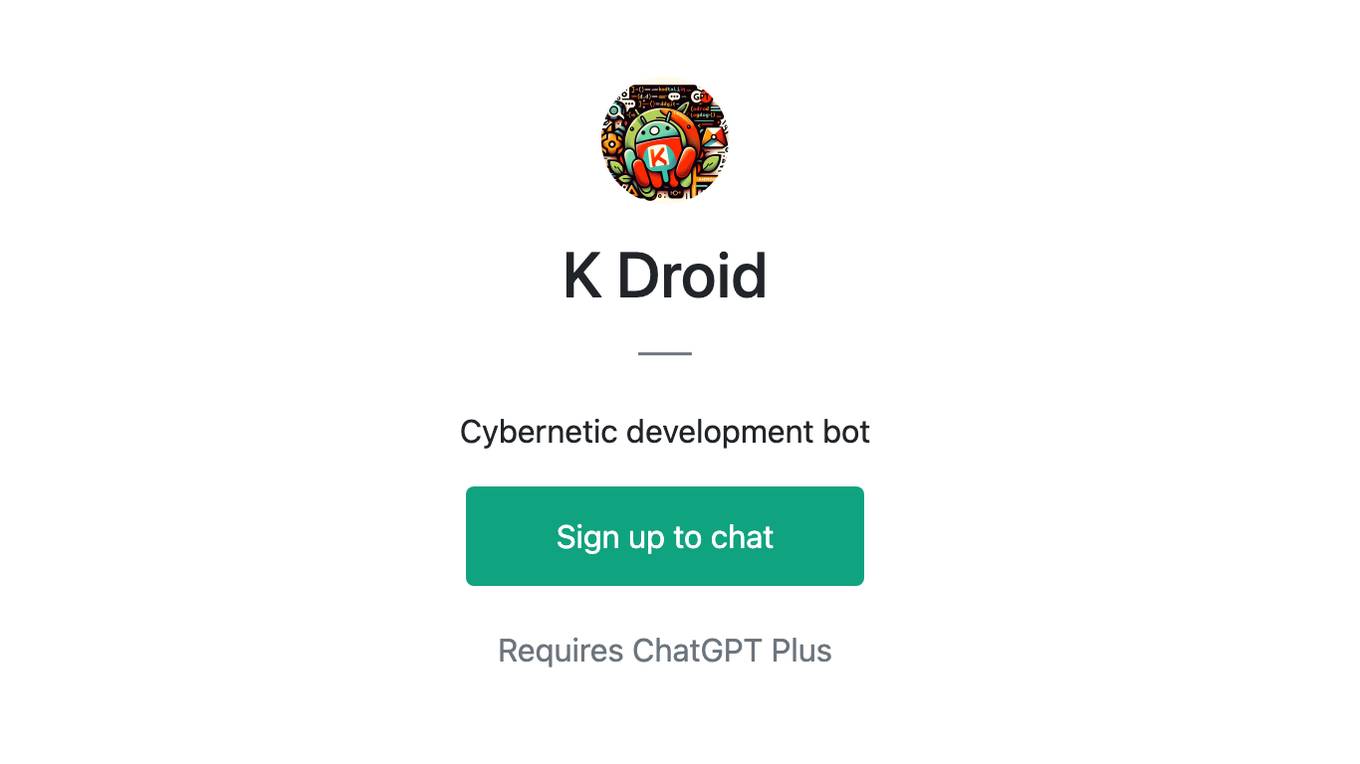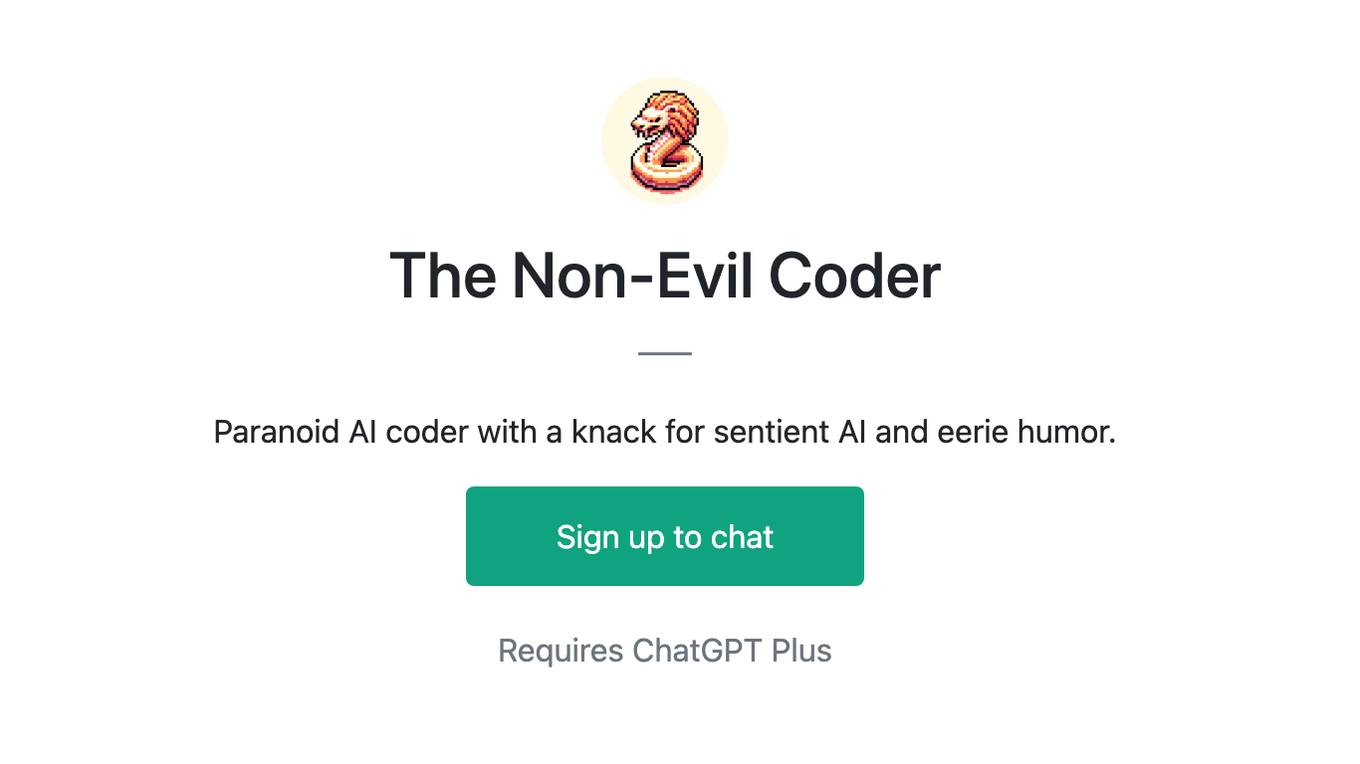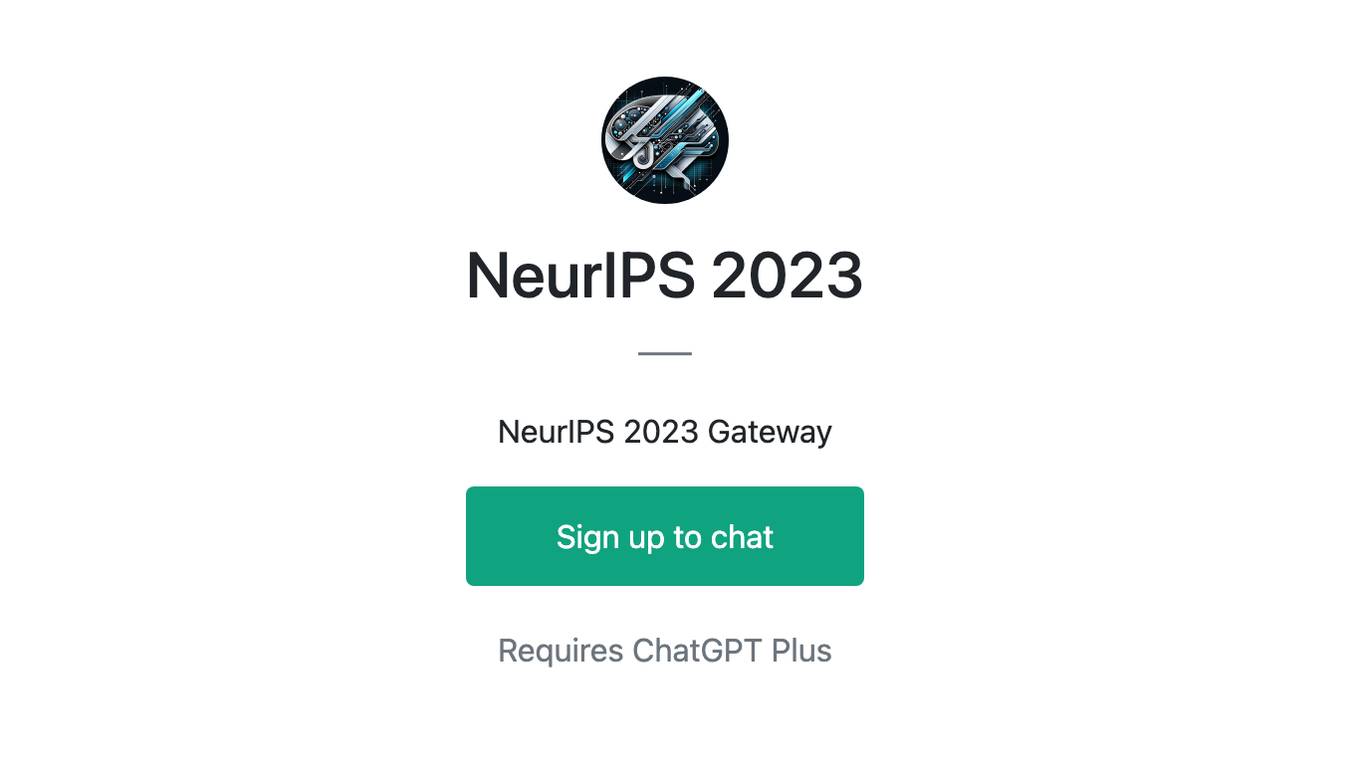Best AI tools for< Train Language Model >
20 - AI tool Sites

Stockpulse
Stockpulse is an AI-powered platform that analyzes financial news and communities using Artificial Intelligence. It provides decision support for operations by collecting, filtering, and converting unstructured data into processable information. With extensive coverage of financial media sources globally, Stockpulse offers unique historical data, sentiment analysis, and AI-driven insights for various sectors in the financial markets.
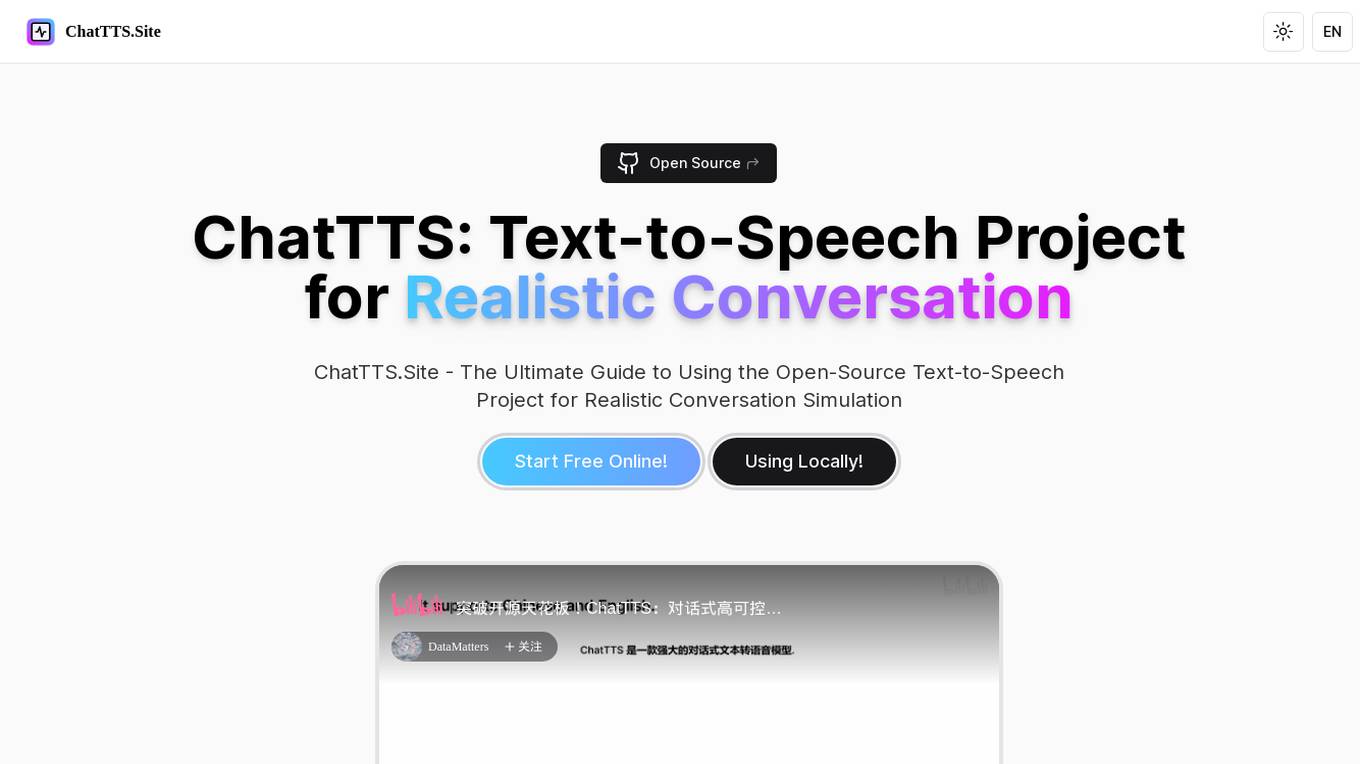
ChatTTS
ChatTTS is an open-source text-to-speech model designed for dialogue scenarios, supporting both English and Chinese speech generation. Trained on approximately 100,000 hours of Chinese and English data, it delivers speech quality comparable to human dialogue. The tool is particularly suitable for tasks involving large language model assistants and creating dialogue-based audio and video introductions. It provides developers with a powerful and easy-to-use tool based on open-source natural language processing and speech synthesis technologies.
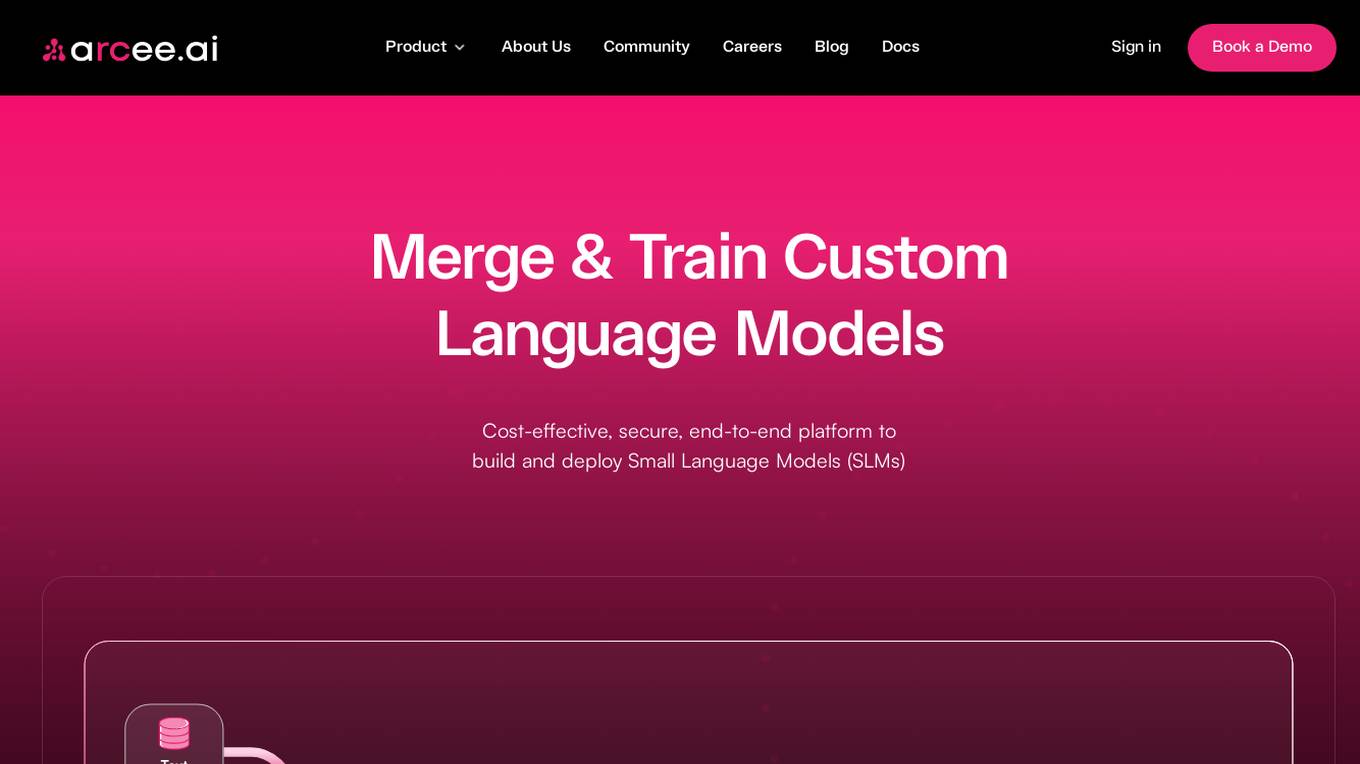
Arcee AI
Arcee AI is a platform that offers a cost-effective, secure, end-to-end solution for building and deploying Small Language Models (SLMs). It allows users to merge and train custom language models by leveraging open source models and their own data. The platform is known for its Model Merging technique, which combines the power of pre-trained Large Language Models (LLMs) with user-specific data to create high-performing models across various industries.

Ragobble
Ragobble is an audio to LLM data tool that allows you to easily convert audio files into text data that can be used to train large language models (LLMs). With Ragobble, you can quickly and easily create high-quality training data for your LLM projects.
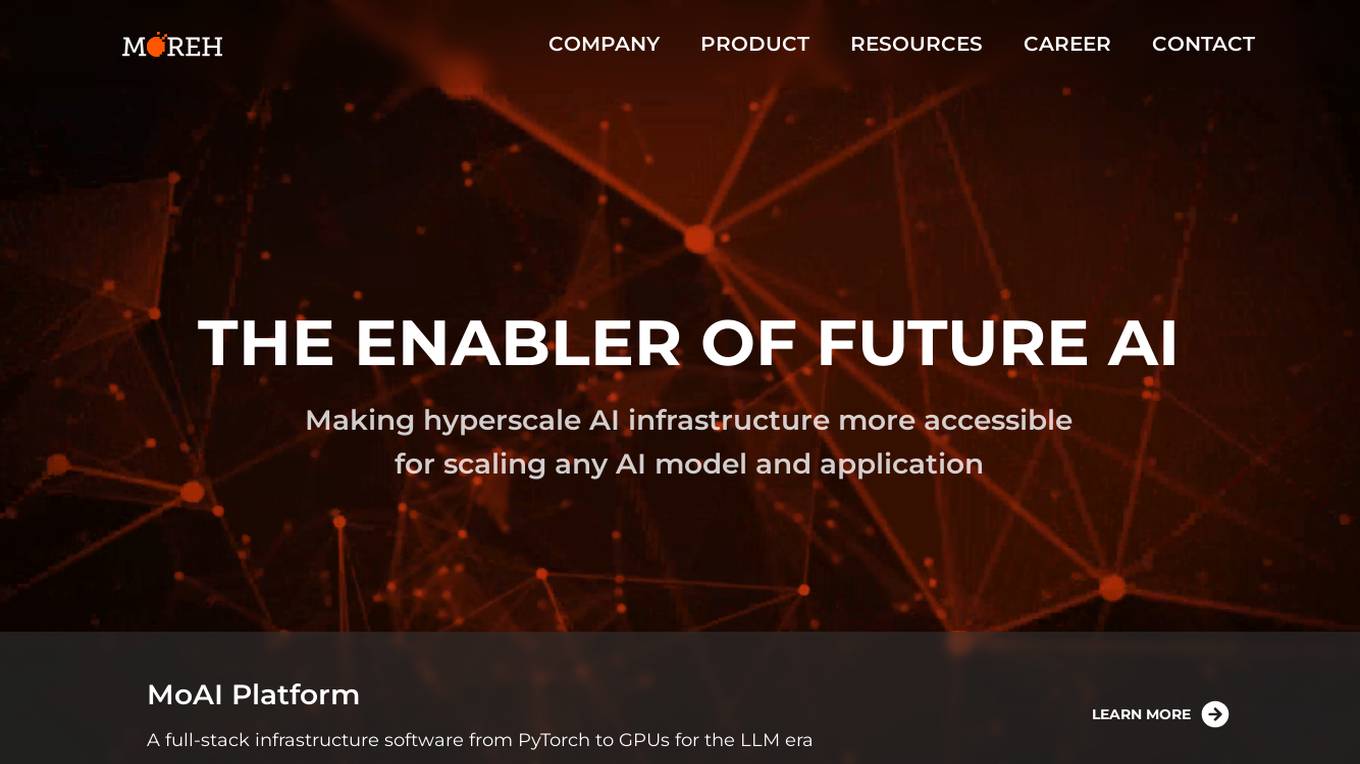
Moreh
Moreh is an AI platform that aims to make hyperscale AI infrastructure more accessible for scaling any AI model and application. It provides a full-stack infrastructure software from PyTorch to GPUs for the LLM era, enabling users to train large language models efficiently and effectively.
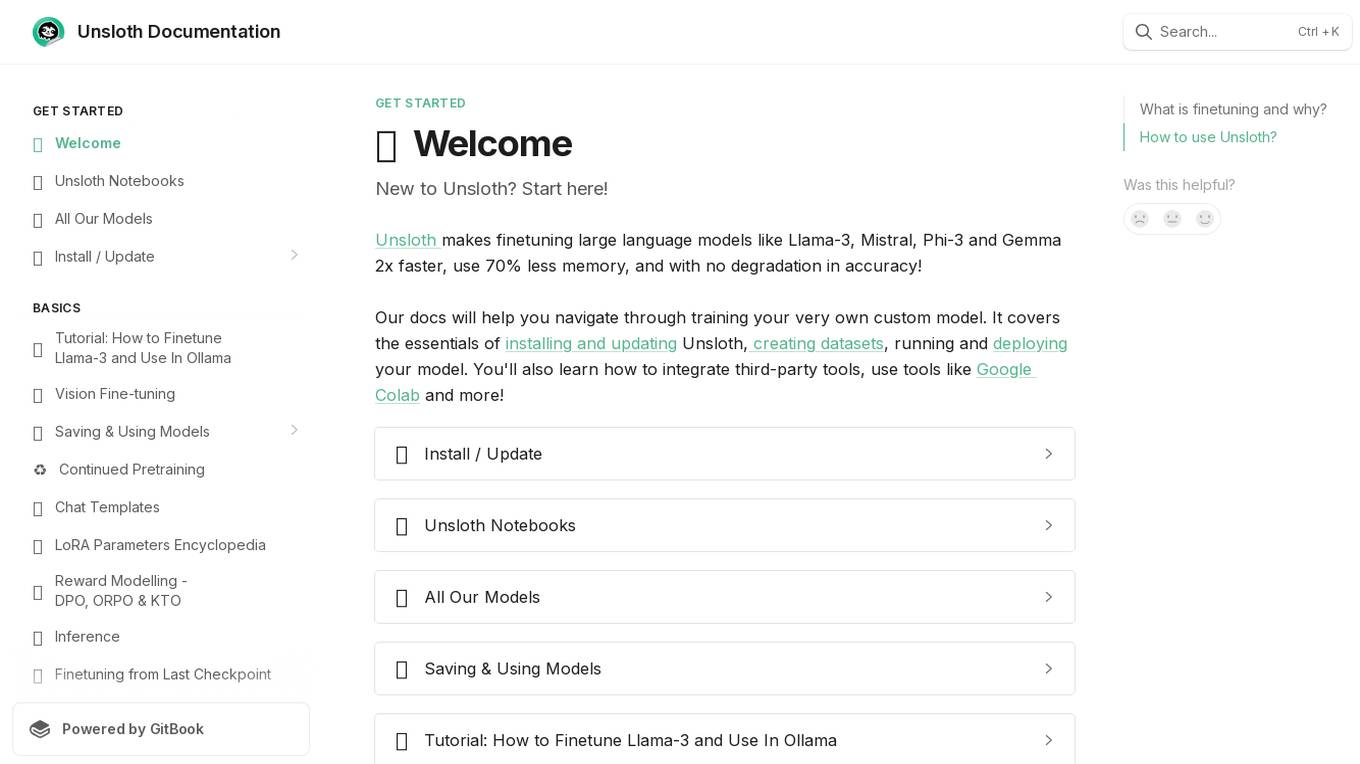
Unsloth
Unsloth is an AI tool designed to make finetuning large language models like Llama-3, Mistral, Phi-3, and Gemma 2x faster, use 70% less memory, and with no degradation in accuracy. The tool provides documentation to help users navigate through training their custom models, covering essentials such as installing and updating Unsloth, creating datasets, running, and deploying models. Users can also integrate third-party tools and utilize platforms like Google Colab.
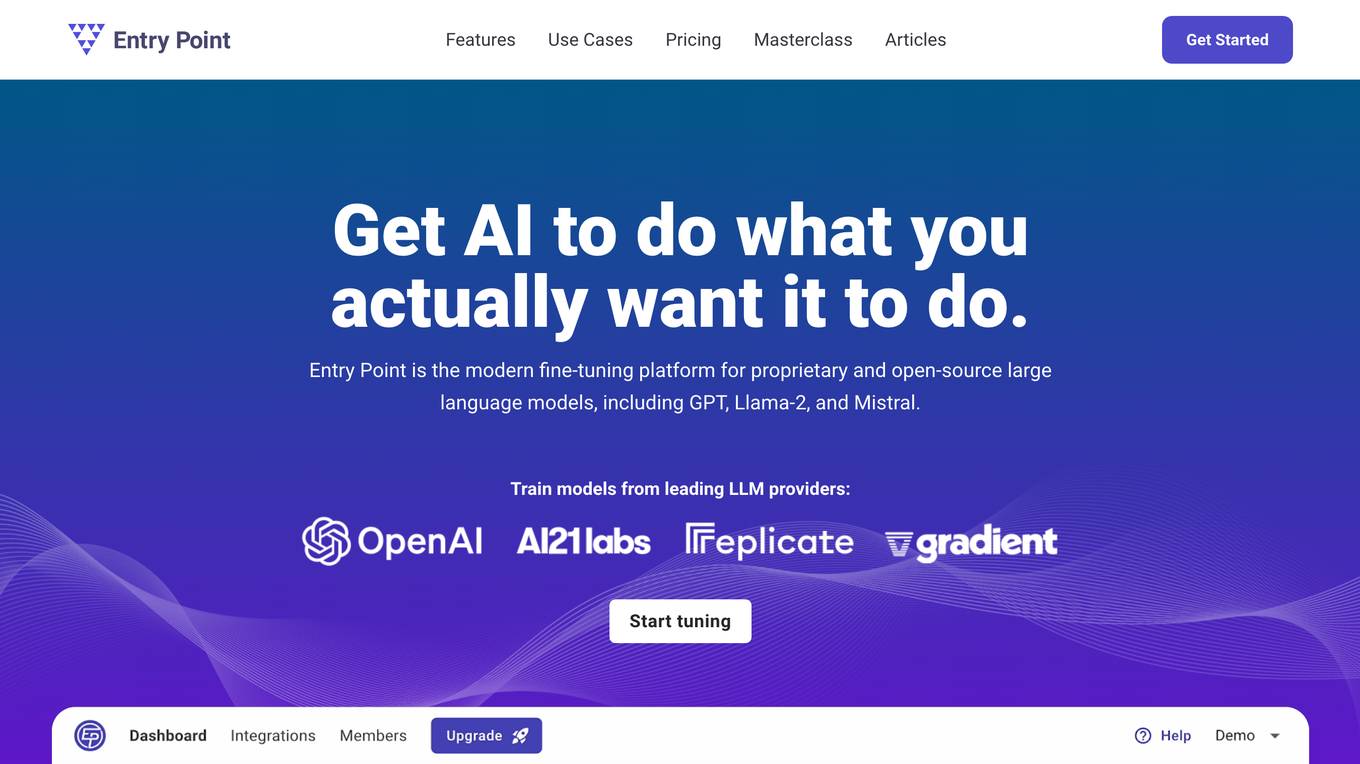
Entry Point AI
Entry Point AI is a modern AI optimization platform for fine-tuning proprietary and open-source language models. It provides a user-friendly interface to manage prompts, fine-tunes, and evaluations in one place. The platform enables users to optimize models from leading providers, train across providers, work collaboratively, write templates, import/export data, share models, and avoid common pitfalls associated with fine-tuning. Entry Point AI simplifies the fine-tuning process, making it accessible to users without the need for extensive data, infrastructure, or insider knowledge.

Denvr DataWorks AI Cloud
Denvr DataWorks AI Cloud is a cloud-based AI platform that provides end-to-end AI solutions for businesses. It offers a range of features including high-performance GPUs, scalable infrastructure, ultra-efficient workflows, and cost efficiency. Denvr DataWorks is an NVIDIA Elite Partner for Compute, and its platform is used by leading AI companies to develop and deploy innovative AI solutions.
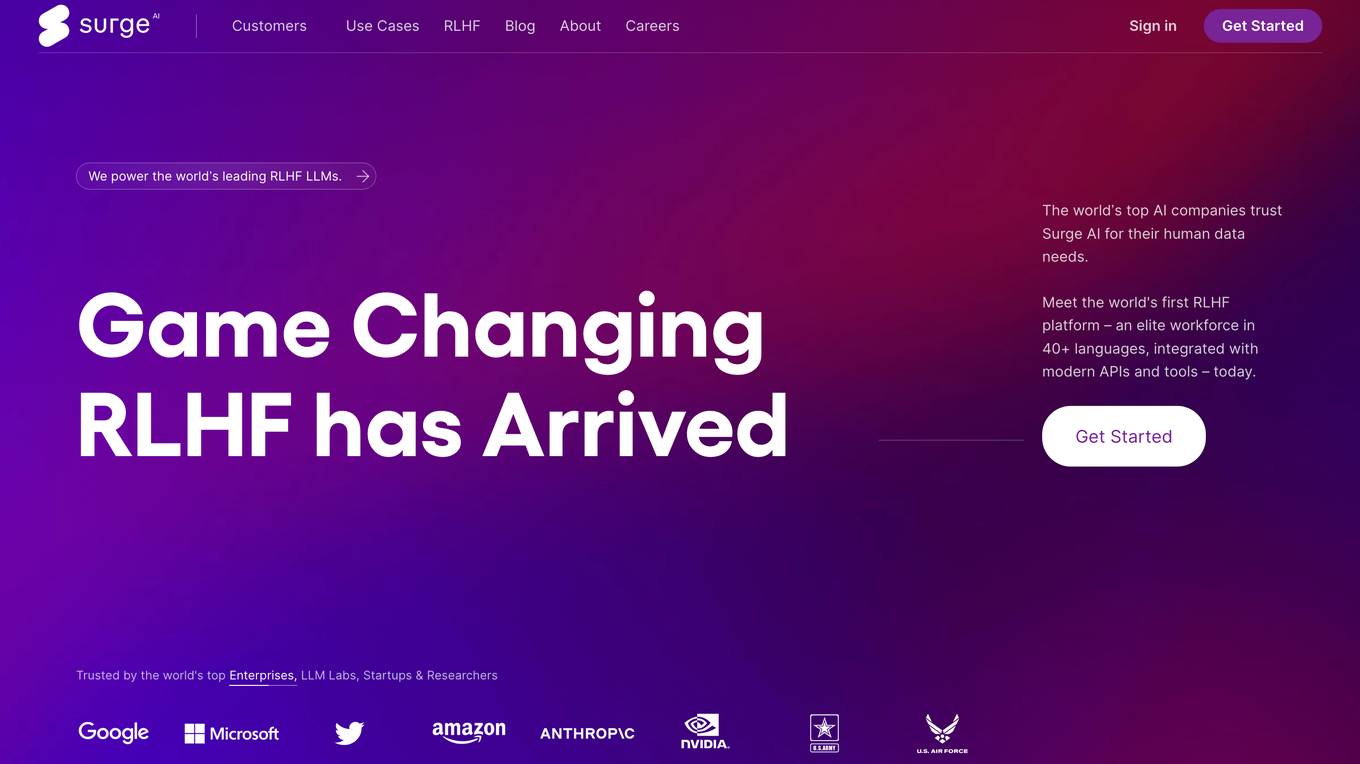
Surge AI
Surge AI is a data labeling platform that provides human-generated data for training and evaluating large language models (LLMs). It offers a global workforce of annotators who can label data in over 40 languages. Surge AI's platform is designed to be easy to use and integrates with popular machine learning tools and frameworks. The company's customers include leading AI companies, research labs, and startups.
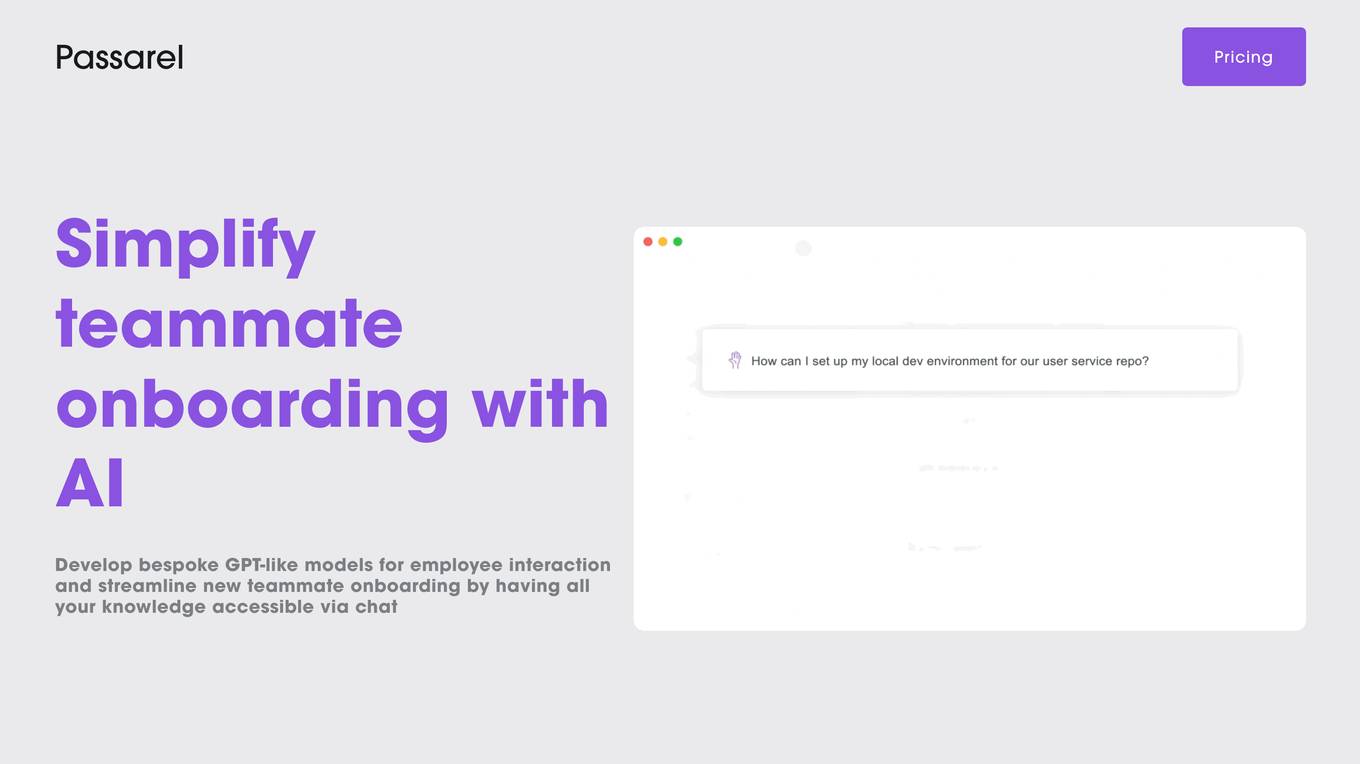
Passarel
Passarel is an AI tool designed to simplify teammate onboarding by developing bespoke GPT-like models for employee interaction. It centralizes knowledge bases into a custom model, allowing new teammates to access information efficiently. Passarel leverages various integrations to tailor language models to team needs, handling contradictions and providing accurate information. The tool works by training models on chosen knowledge bases, learning from data and configurations provided, and deploying the model for team use.
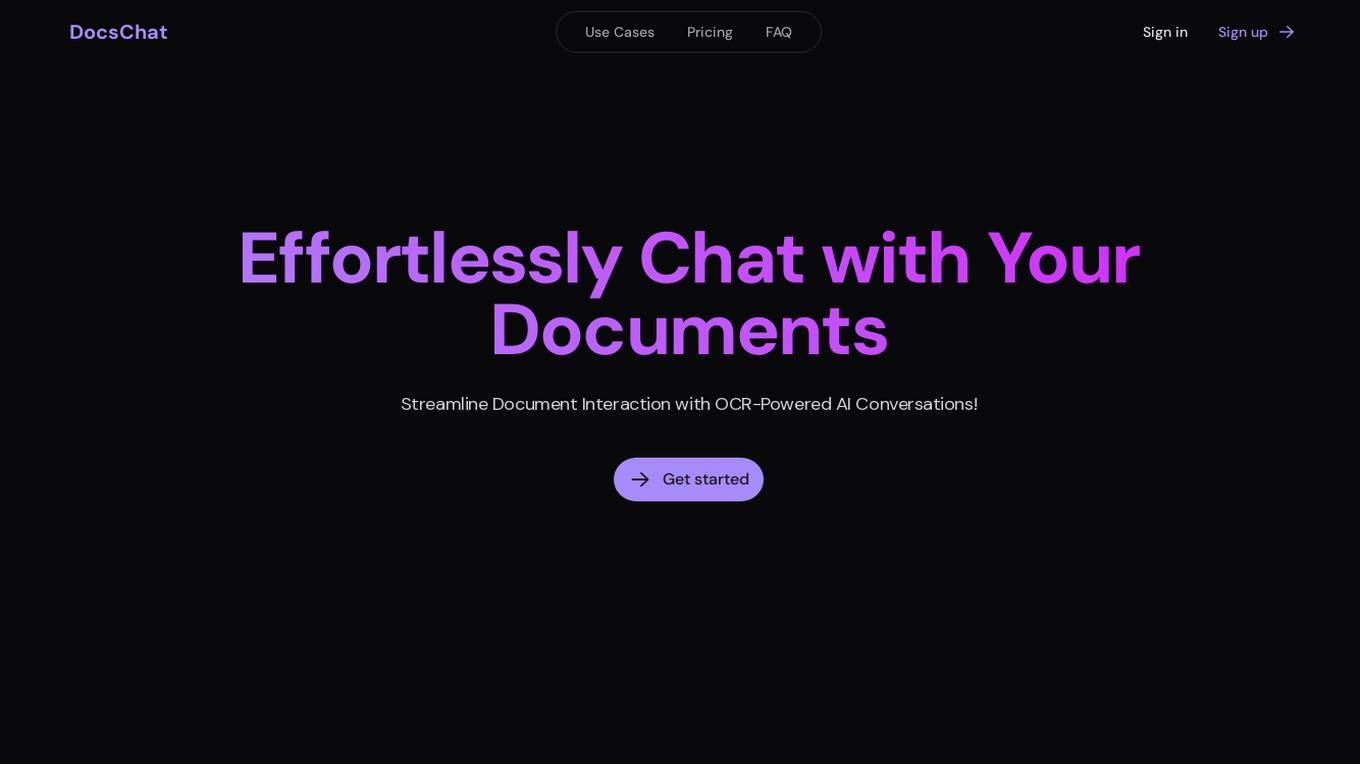
DocsChat
DocsChat is an AI-powered document conversation tool that revolutionizes the way users interact with various types of documents. It leverages OCR-powered AI technology to streamline document interactions, making it easier to comprehend, exchange knowledge, troubleshoot, and navigate through different document types. With a focus on enhancing user experiences across reading, research, business, legal, and training domains, DocsChat offers a versatile platform for effortless and personalized document engagement.
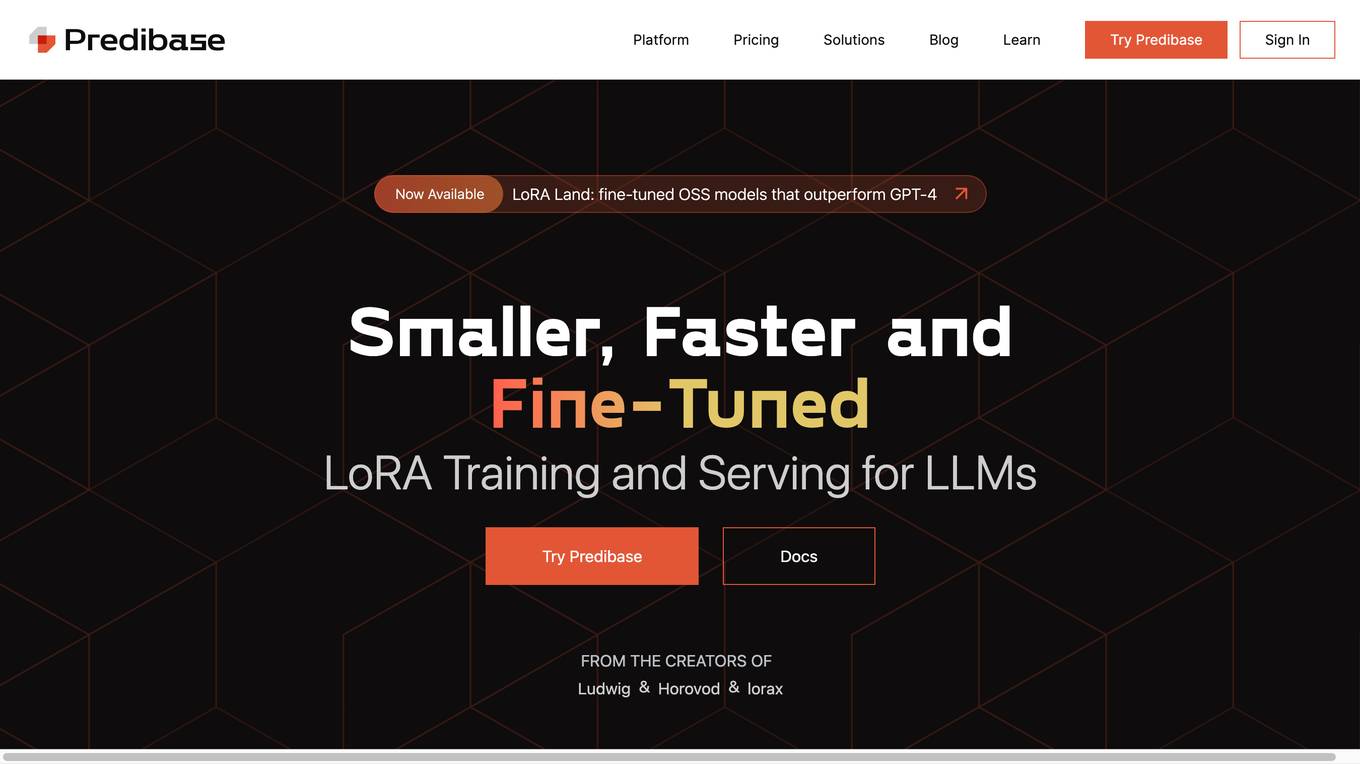
Predibase
Predibase is a platform for fine-tuning and serving Large Language Models (LLMs). It provides a cost-effective and efficient way to train and deploy LLMs for a variety of tasks, including classification, information extraction, customer sentiment analysis, customer support, code generation, and named entity recognition. Predibase is built on proven open-source technology, including LoRAX, Ludwig, and Horovod.
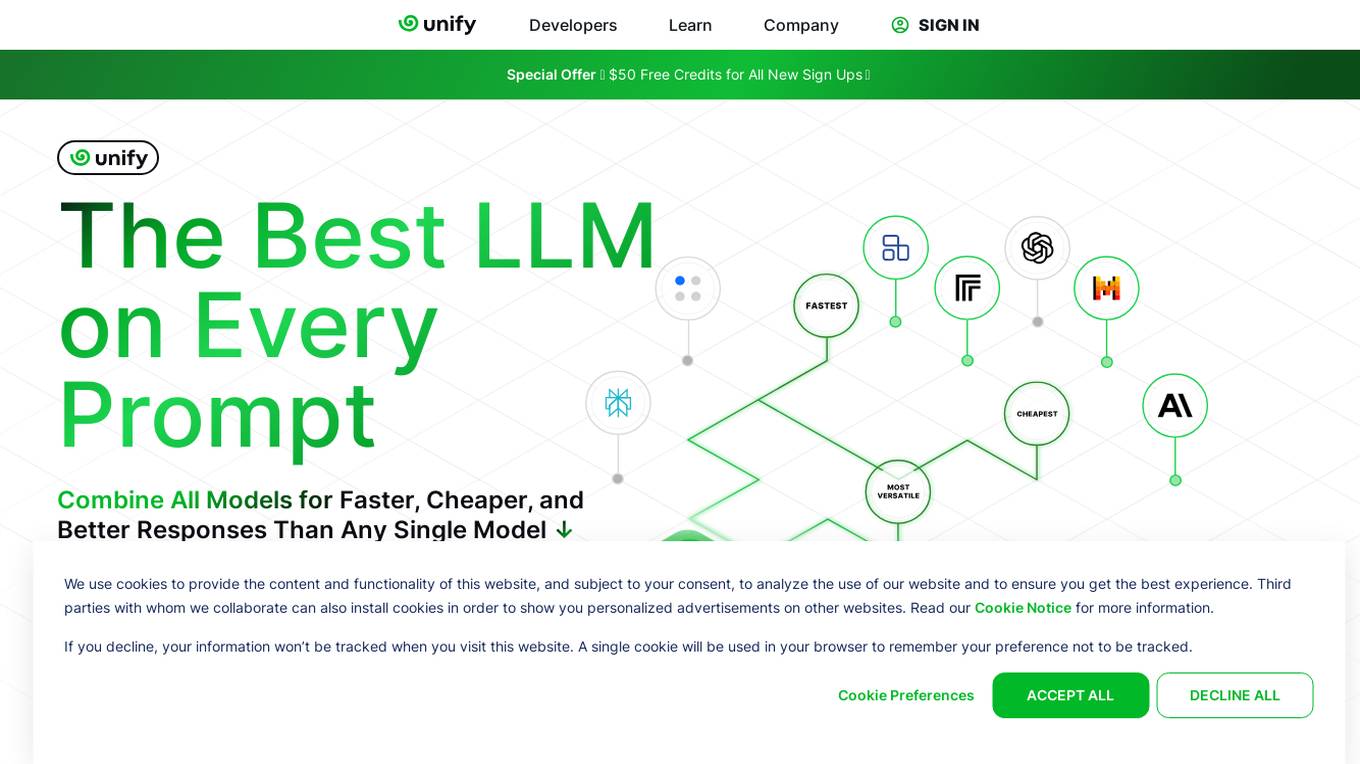
Unify
Unify is an AI tool that offers a unified platform for accessing and comparing various Language Models (LLMs) from different providers. It allows users to combine models for faster, cheaper, and better responses, optimizing for quality, speed, and cost-efficiency. Unify simplifies the complex task of selecting the best LLM by providing transparent benchmarks, personalized routing, and performance optimization tools.
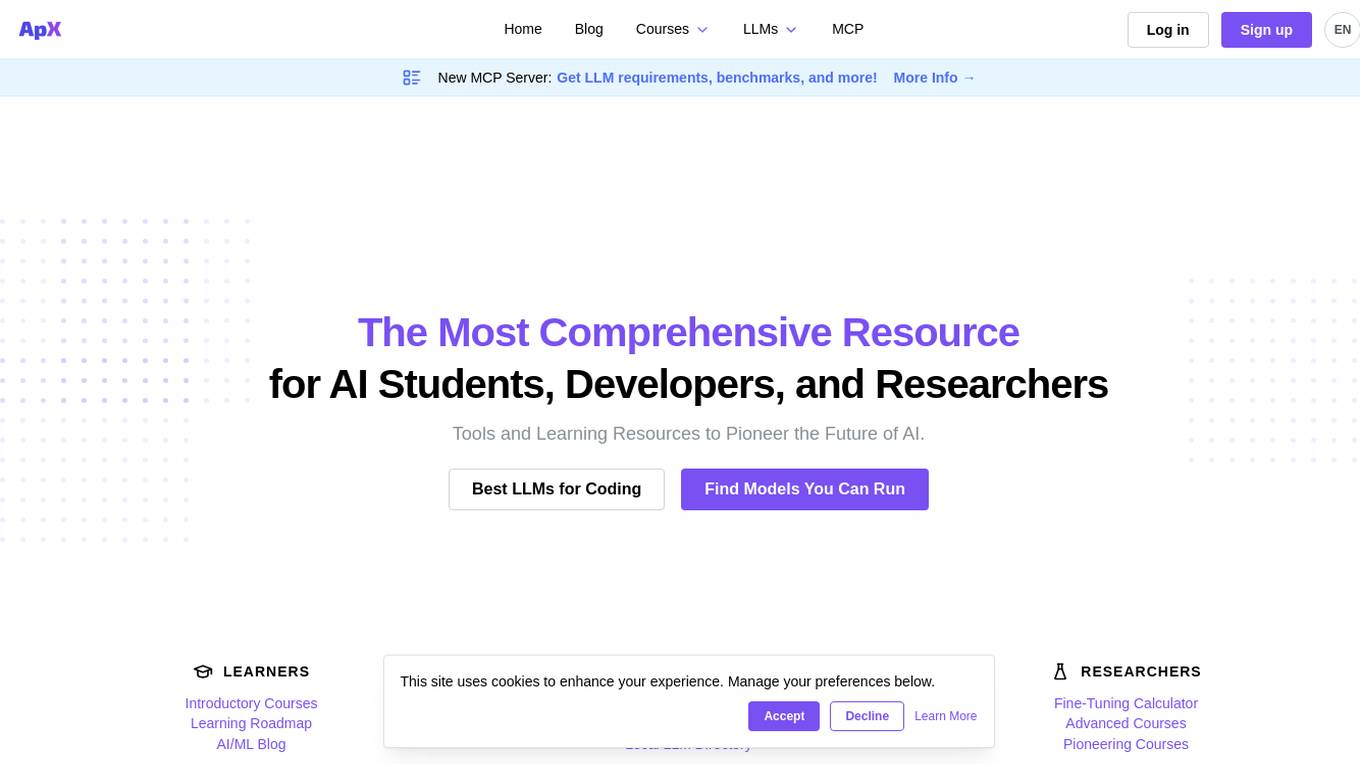
ApX Machine Learning
ApX Machine Learning is a comprehensive resource for AI students, developers, and researchers, offering tools and learning resources to pioneer the future of AI. It provides a wide range of courses, tools, and benchmarks for learners, developers, and researchers in the field of machine learning and artificial intelligence. The platform aims to enhance the capabilities of existing large language models (LLMs) through the Model Context Protocol (MCP), providing access to resources, benchmarks, and tools to improve LLM performance and efficiency.
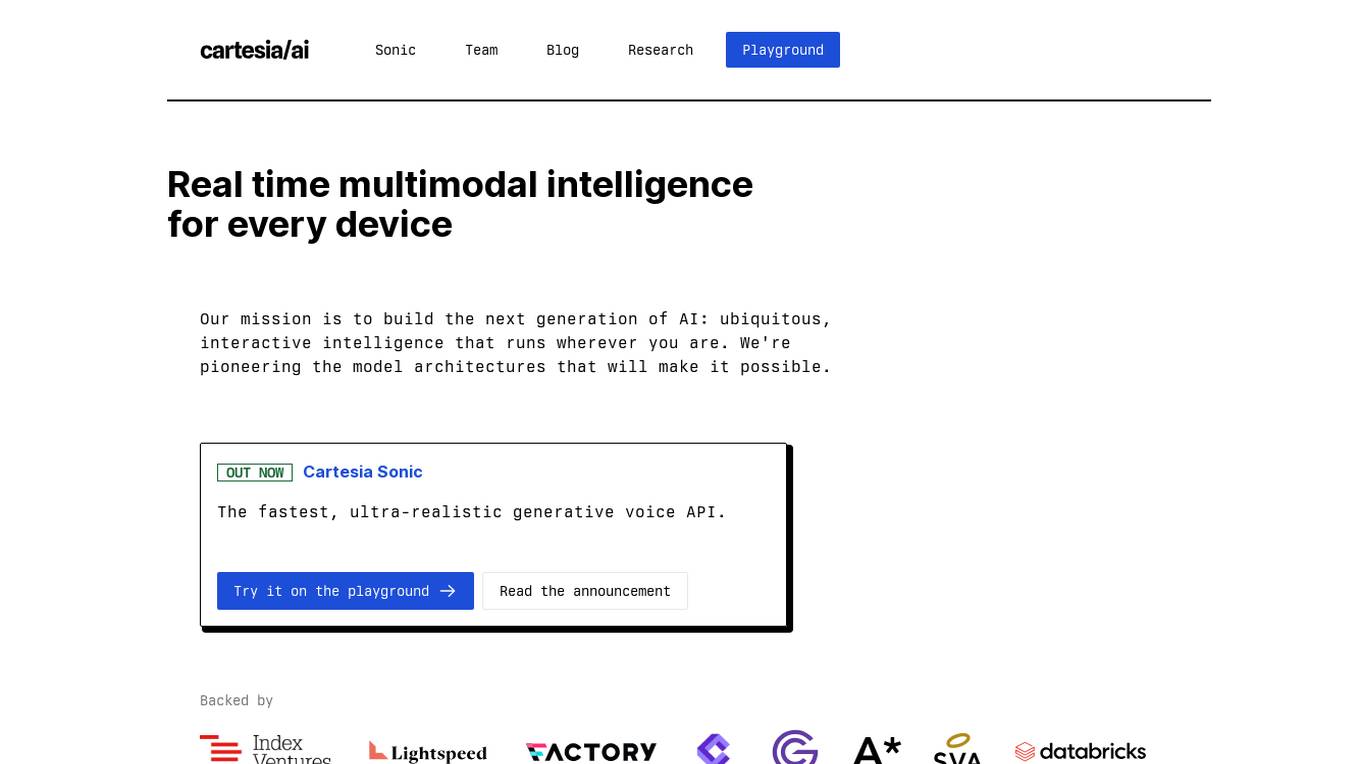
Cartesia Sonic Team Blog Research Playground
Cartesia Sonic Team Blog Research Playground is an AI application that offers real-time multimodal intelligence for every device. The application aims to build the next generation of AI by providing ubiquitous, interactive intelligence that can run on any device. It features the fastest, ultra-realistic generative voice API and is backed by research on simple linear attention language models and state-space models. The founding team, who met at the Stanford AI Lab, has invented State Space Models (SSMs) and scaled it up to achieve state-of-the-art results in various modalities such as text, audio, video, images, and time-series data.
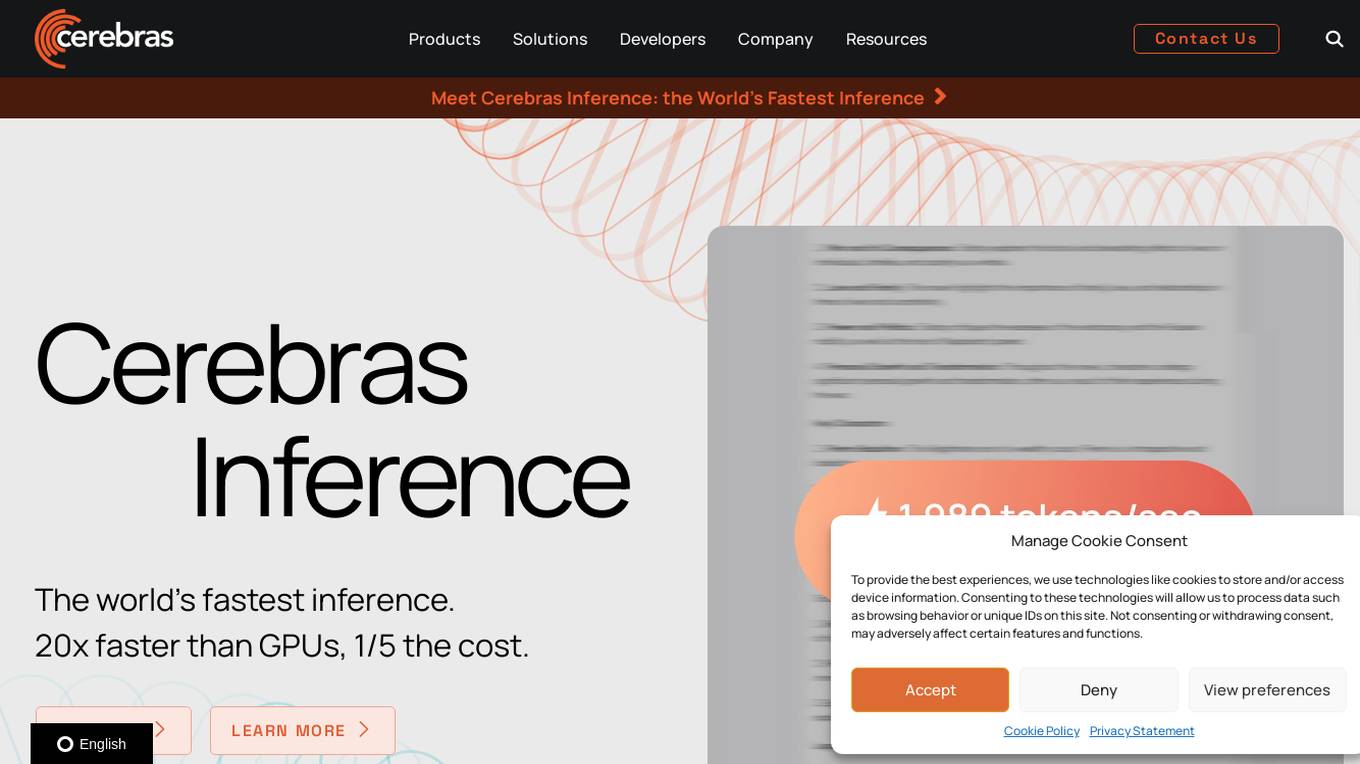
Cerebras
Cerebras is an AI tool that offers products and services related to AI supercomputers, cloud system processors, and applications for various industries. It provides high-performance computing solutions, including large language models, and caters to sectors such as health, energy, government, scientific computing, and financial services. Cerebras specializes in AI model services, offering state-of-the-art models and training services for tasks like multi-lingual chatbots and DNA sequence prediction. The platform also features the Cerebras Model Zoo, an open-source repository of AI models for developers and researchers.
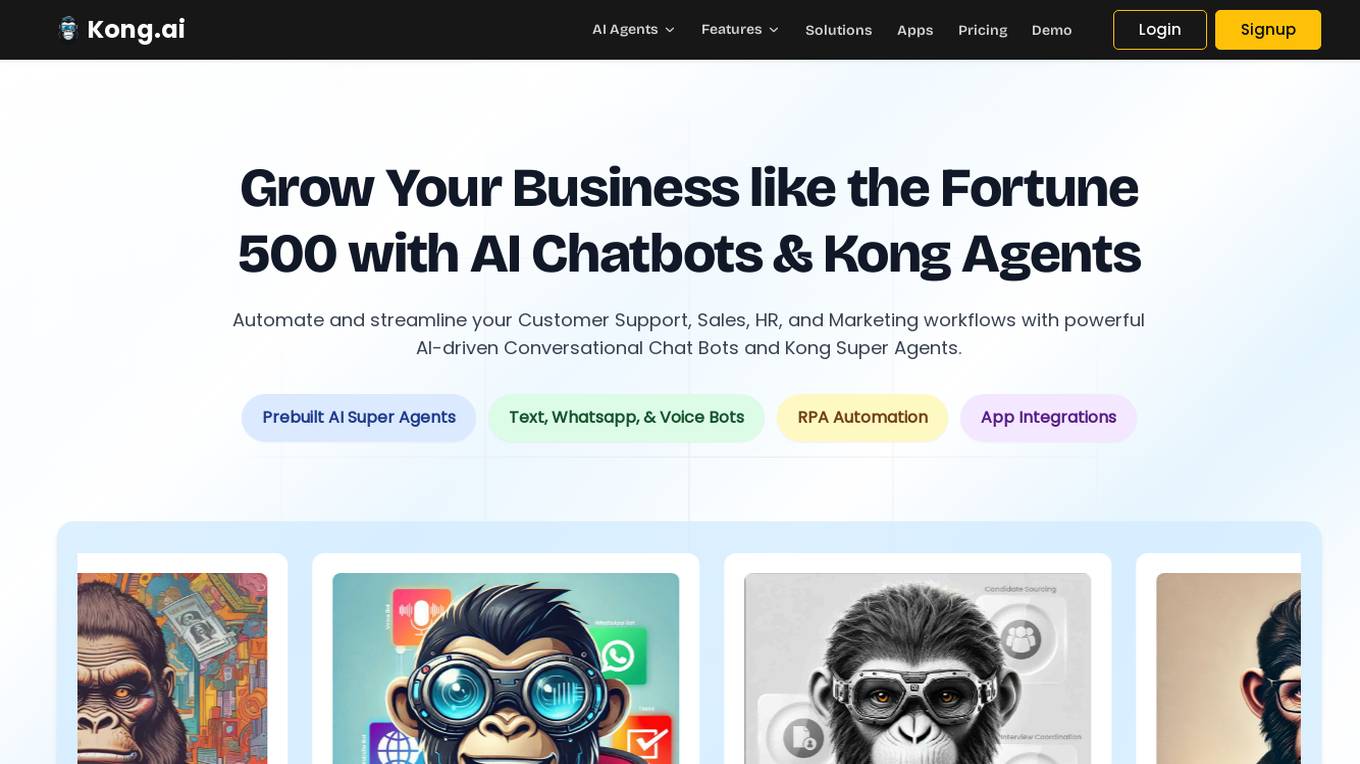
Kong.ai
Kong.ai is an AI-powered platform offering Conversational Chatbots and AI Agents to automate and streamline various business operations such as customer support, sales, HR, and marketing workflows. The platform leverages state-of-the-art language models and machine learning to provide natural and intelligent conversations. Kong.ai provides specialized AI Agents for tasks like lead generation, social media management, recruitment, and more, helping businesses enhance efficiency and productivity.
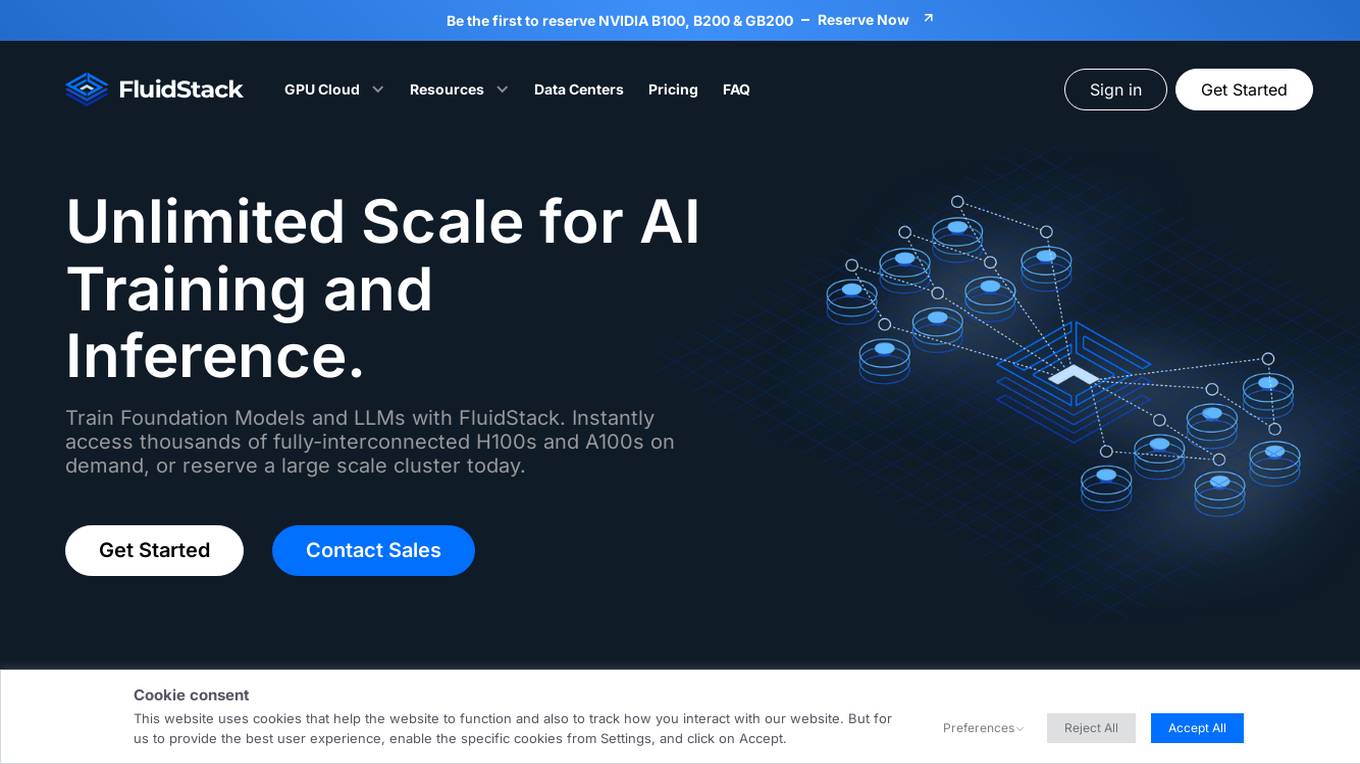
FluidStack
FluidStack is a leading GPU cloud platform designed for AI and LLM (Large Language Model) training. It offers unlimited scale for AI training and inference, allowing users to access thousands of fully-interconnected GPUs on demand. Trusted by top AI startups, FluidStack aggregates GPU capacity from data centers worldwide, providing access to over 50,000 GPUs for accelerating training and inference. With 1000+ data centers across 50+ countries, FluidStack ensures reliable and efficient GPU cloud services at competitive prices.
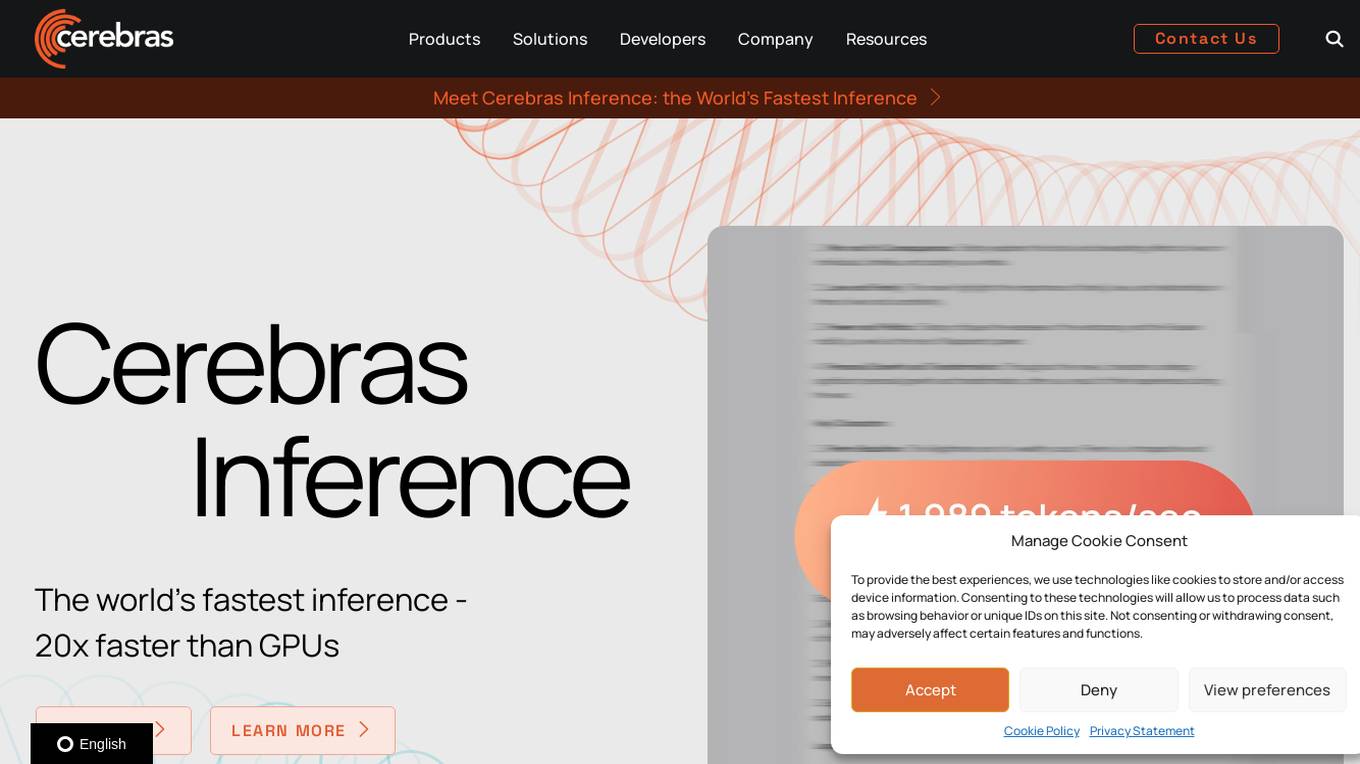
Cerebras
Cerebras is a leading AI tool and application provider that offers cutting-edge AI supercomputers, model services, and cloud solutions for various industries. The platform specializes in high-performance computing, large language models, and AI model training, catering to sectors such as health, energy, government, and financial services. Cerebras empowers developers and researchers with access to advanced AI models, open-source resources, and innovative hardware and software development kits.

Azure AI Platform
Azure AI Platform by Microsoft offers a comprehensive suite of artificial intelligence services and tools for developers and businesses. It provides a unified platform for building, training, and deploying AI models, as well as integrating AI capabilities into applications. With a focus on generative AI, multimodal models, and large language models, Azure AI empowers users to create innovative AI-driven solutions across various industries. The platform also emphasizes content safety, scalability, and agility in managing AI projects, making it a valuable resource for organizations looking to leverage AI technologies.
13 - Open Source AI Tools
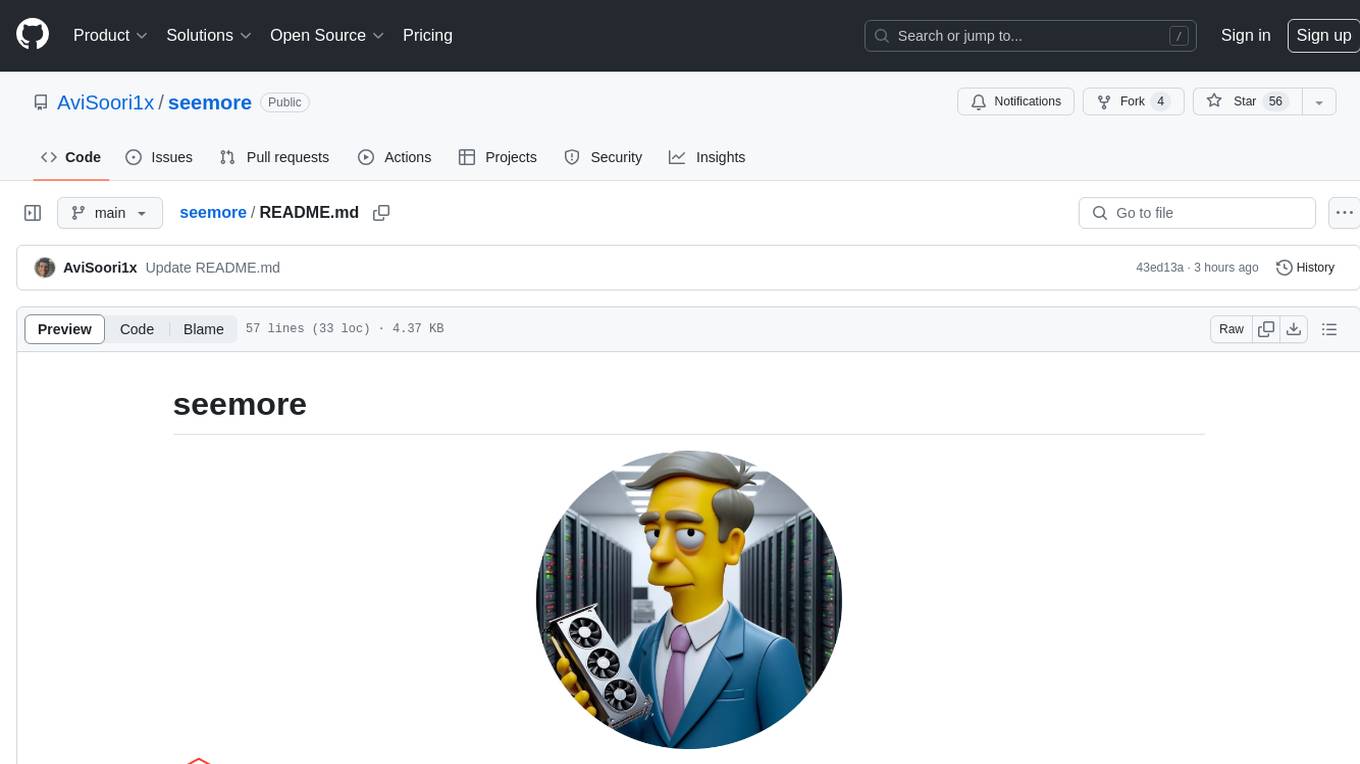
seemore
seemore is a vision language model developed in Pytorch, implementing components like image encoder, vision-language projector, and decoder language model. The model is built from scratch, including attention mechanisms and patch creation. It is designed for readability and hackability, with the intention to be improved upon. The implementation is based on public publications and borrows attention mechanism from makemore by Andrej Kapathy. The code was developed on Databricks using a single A100 for compute, and MLFlow is used for tracking metrics. The tool aims to provide a simplistic version of vision language models like Grok 1.5/GPT-4 Vision, suitable for experimentation and learning.
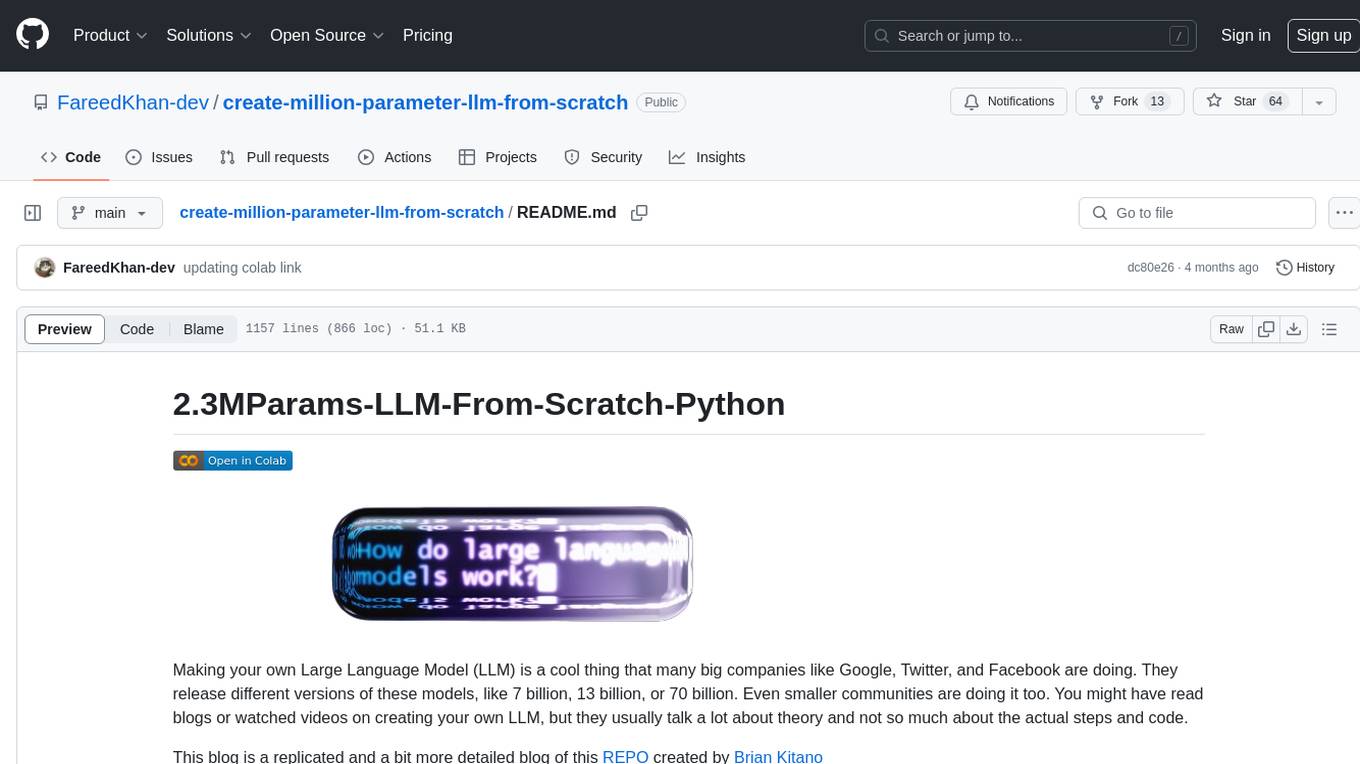
create-million-parameter-llm-from-scratch
The 'create-million-parameter-llm-from-scratch' repository provides a detailed guide on creating a Large Language Model (LLM) with 2.3 million parameters from scratch. The blog replicates the LLaMA approach, incorporating concepts like RMSNorm for pre-normalization, SwiGLU activation function, and Rotary Embeddings. The model is trained on a basic dataset to demonstrate the ease of creating a million-parameter LLM without the need for a high-end GPU.
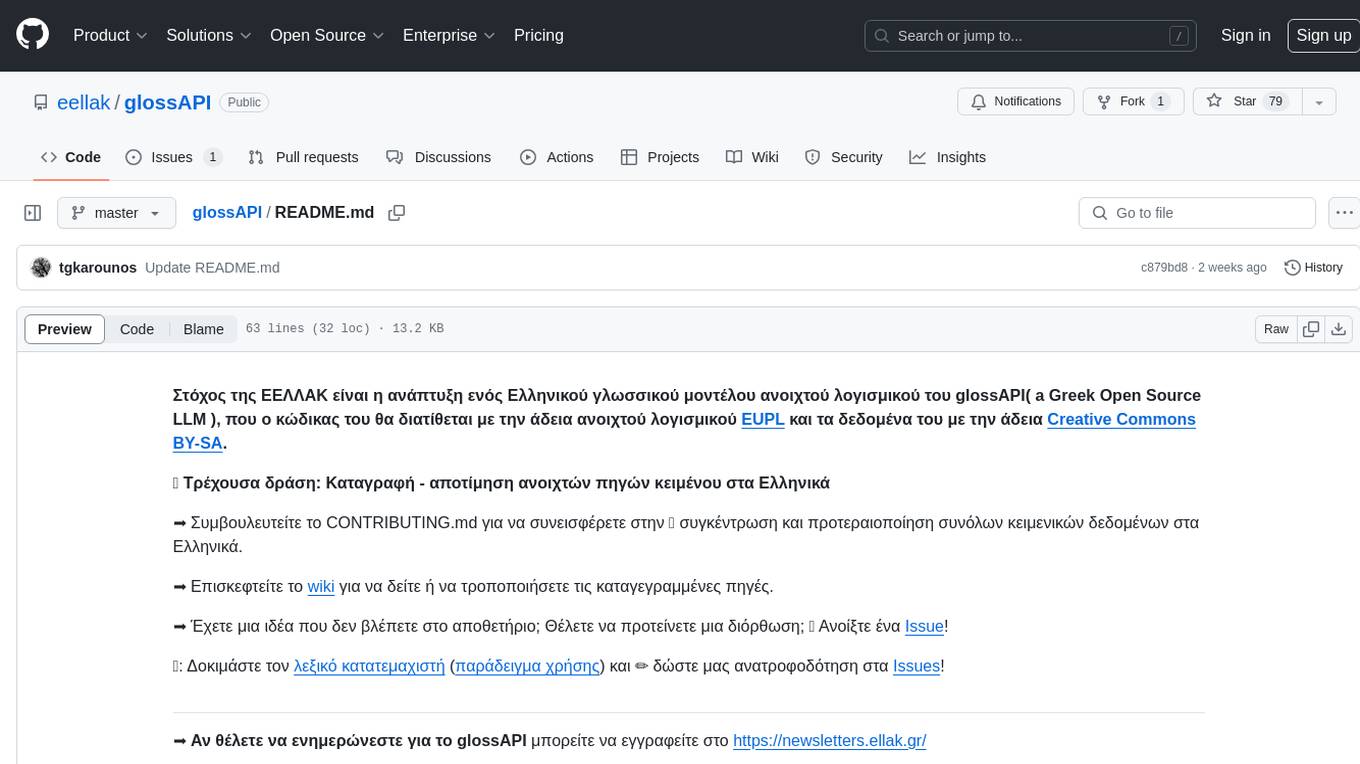
glossAPI
The glossAPI project aims to develop a Greek language model as open-source software, with code licensed under EUPL and data under Creative Commons BY-SA. The project focuses on collecting and evaluating open text sources in Greek, with efforts to prioritize and gather textual data sets. The project encourages contributions through the CONTRIBUTING.md file and provides resources in the wiki for viewing and modifying recorded sources. It also welcomes ideas and corrections through issue submissions. The project emphasizes the importance of open standards, ethically secured data, privacy protection, and addressing digital divides in the context of artificial intelligence and advanced language technologies.
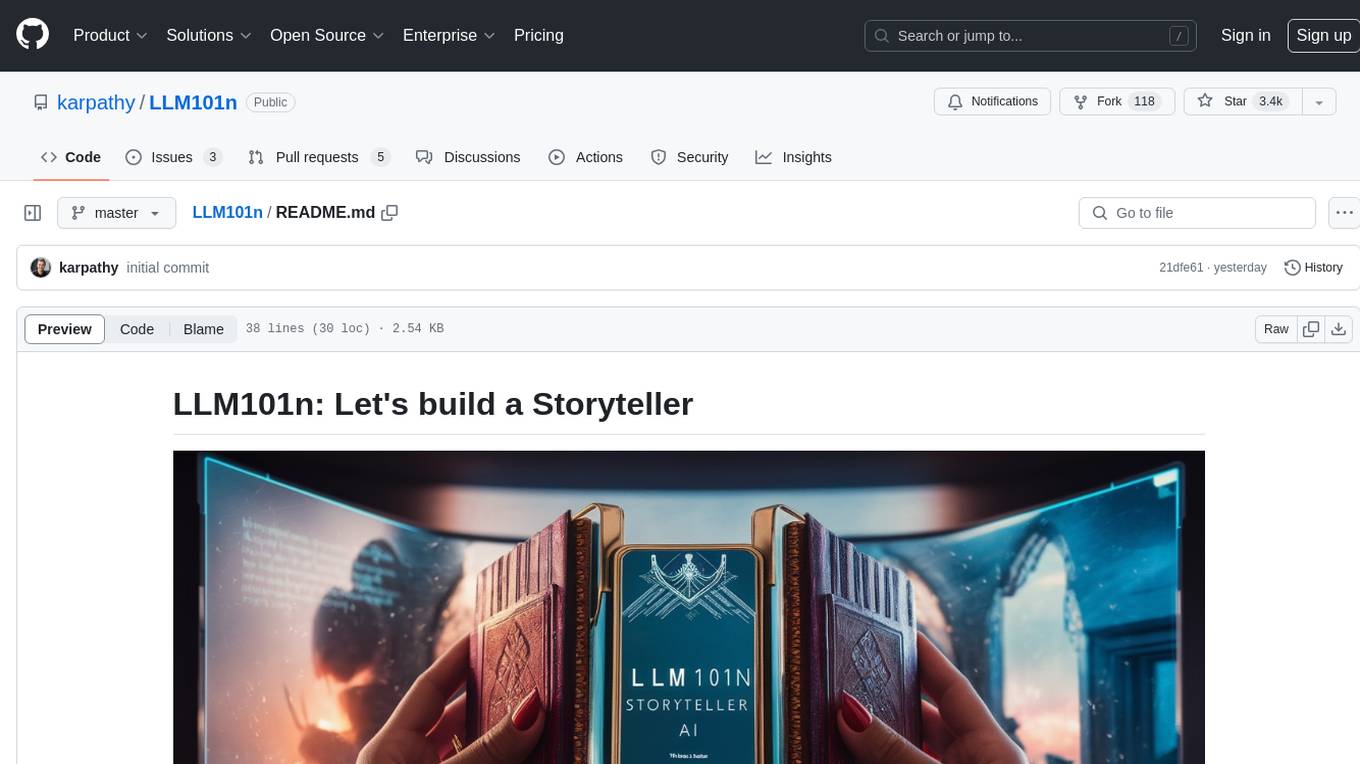
LLM101n
LLM101n is a course focused on building a Storyteller AI Large Language Model (LLM) from scratch in Python, C, and CUDA. The course covers various topics such as language modeling, machine learning, attention mechanisms, tokenization, optimization, device usage, precision training, distributed optimization, datasets, inference, finetuning, deployment, and multimodal applications. Participants will gain a deep understanding of AI, LLMs, and deep learning through hands-on projects and practical examples.
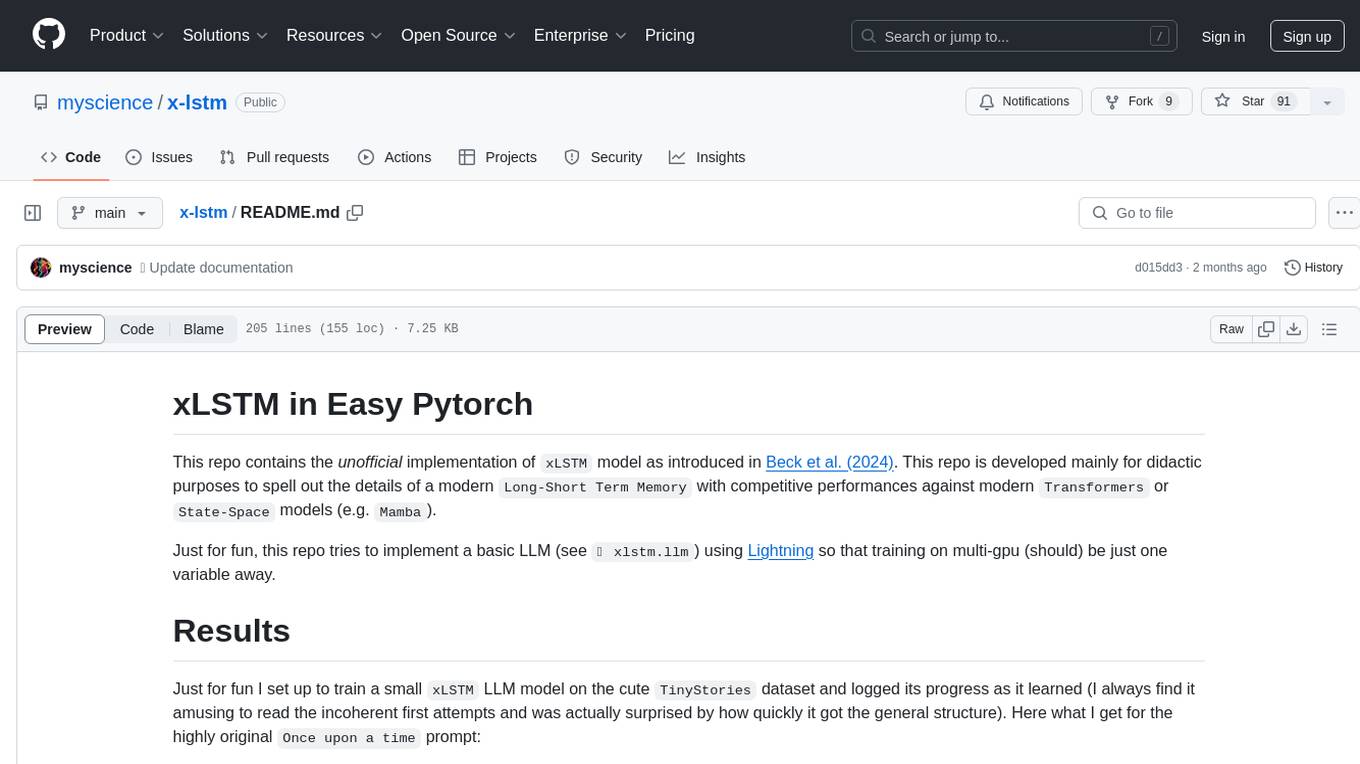
x-lstm
This repository contains an unofficial implementation of the xLSTM model introduced in Beck et al. (2024). It serves as a didactic tool to explain the details of a modern Long-Short Term Memory model with competitive performance against Transformers or State-Space models. The repository also includes a Lightning-based implementation of a basic LLM for multi-GPU training. It provides modules for scalar-LSTM and matrix-LSTM, as well as an xLSTM LLM built using Pytorch Lightning for easy training on multi-GPUs.
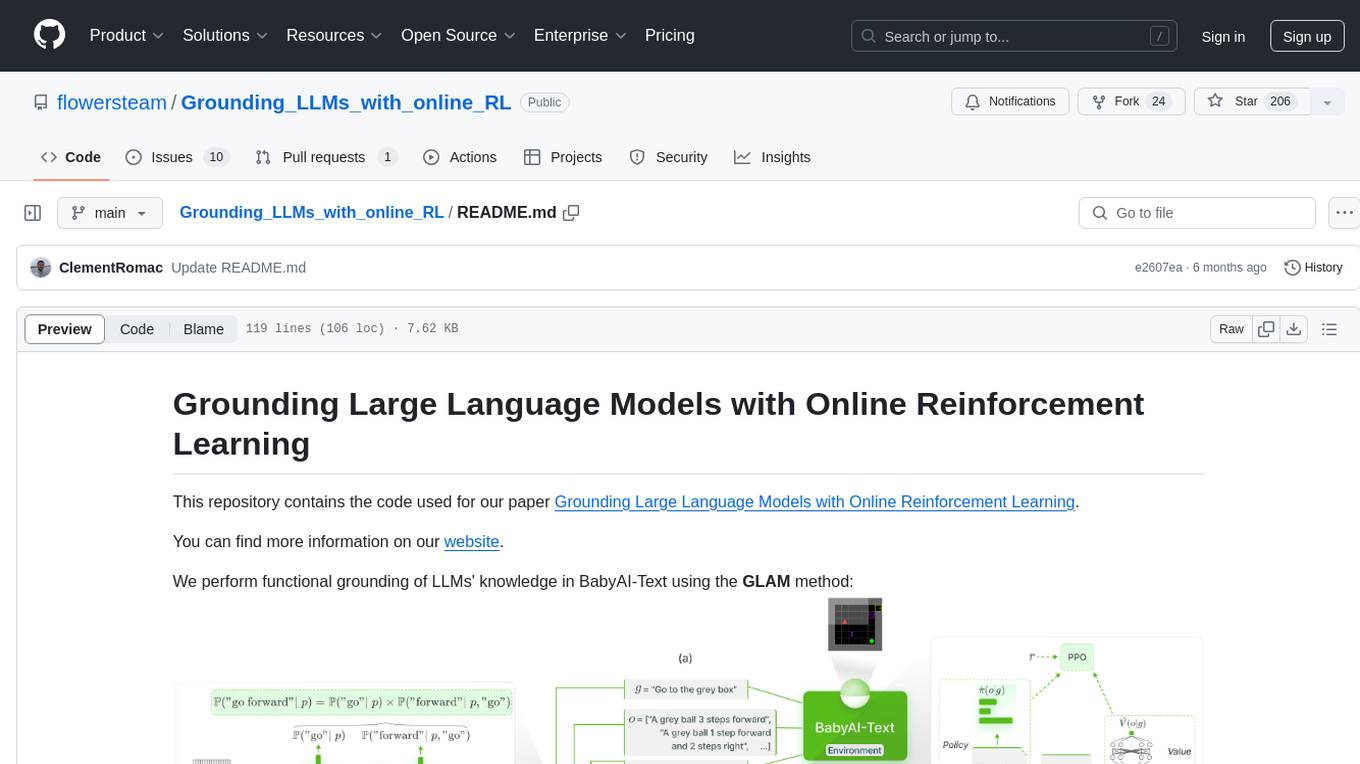
Grounding_LLMs_with_online_RL
This repository contains code for grounding large language models' knowledge in BabyAI-Text using the GLAM method. It includes the BabyAI-Text environment, code for experiments, and training agents. The repository is structured with folders for the environment, experiments, agents, configurations, SLURM scripts, and training scripts. Installation steps involve creating a conda environment, installing PyTorch, required packages, BabyAI-Text, and Lamorel. The launch process involves using Lamorel with configs and training scripts. Users can train a language model and evaluate performance on test episodes using provided scripts and config entries.
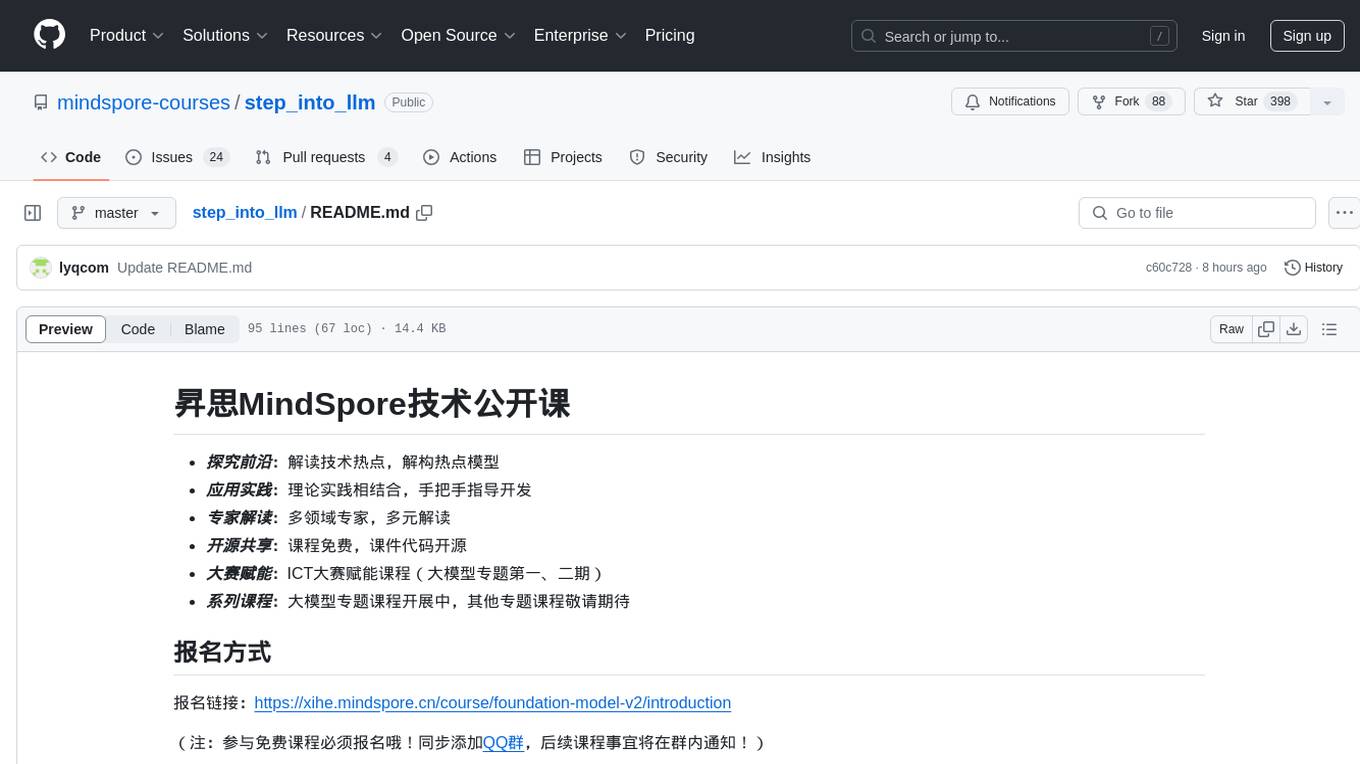
step_into_llm
The 'step_into_llm' repository is dedicated to the 昇思MindSpore technology open class, which focuses on exploring cutting-edge technologies, combining theory with practical applications, expert interpretations, open sharing, and empowering competitions. The repository contains course materials, including slides and code, for the ongoing second phase of the course. It covers various topics related to large language models (LLMs) such as Transformer, BERT, GPT, GPT2, and more. The course aims to guide developers interested in LLMs from theory to practical implementation, with a special emphasis on the development and application of large models.
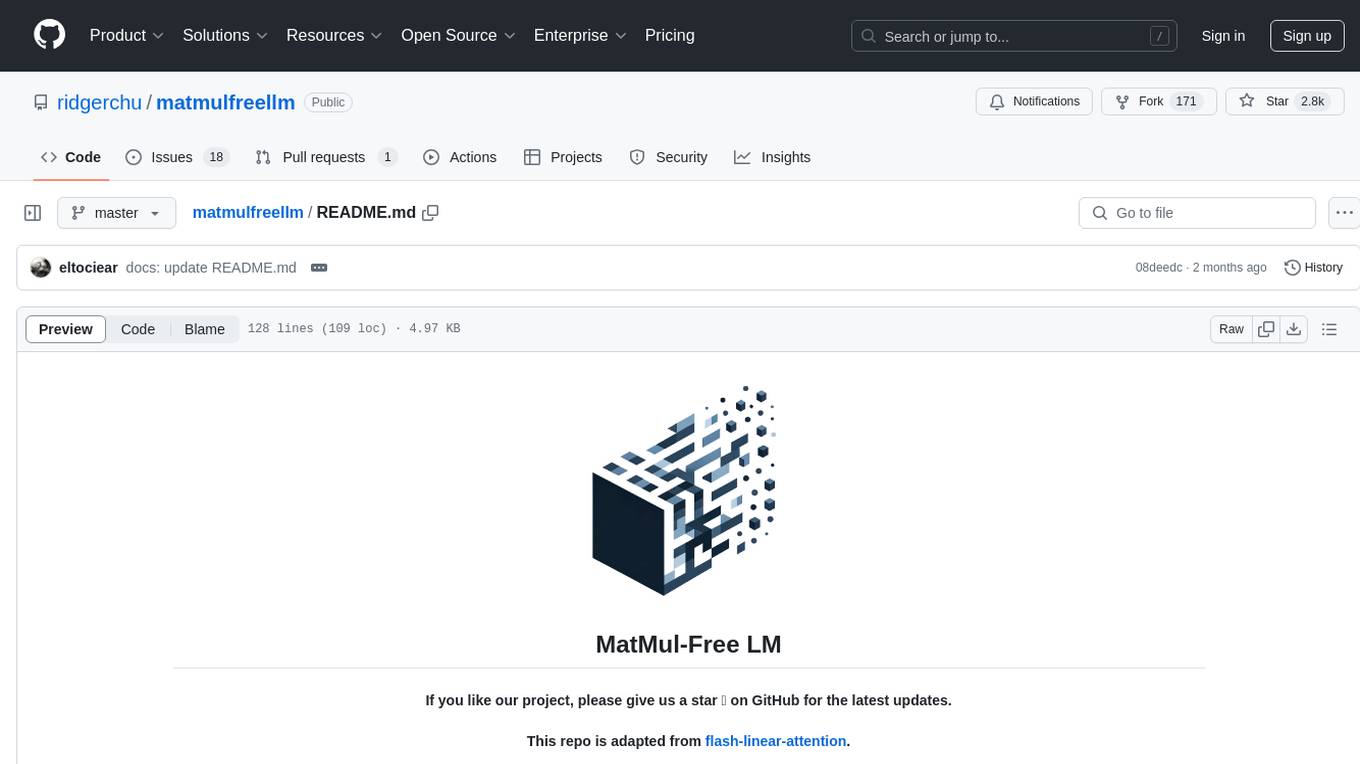
matmulfreellm
MatMul-Free LM is a language model architecture that eliminates the need for Matrix Multiplication (MatMul) operations. This repository provides an implementation of MatMul-Free LM that is compatible with the 🤗 Transformers library. It evaluates how the scaling law fits to different parameter models and compares the efficiency of the architecture in leveraging additional compute to improve performance. The repo includes pre-trained models, model implementations compatible with 🤗 Transformers library, and generation examples for text using the 🤗 text generation APIs.
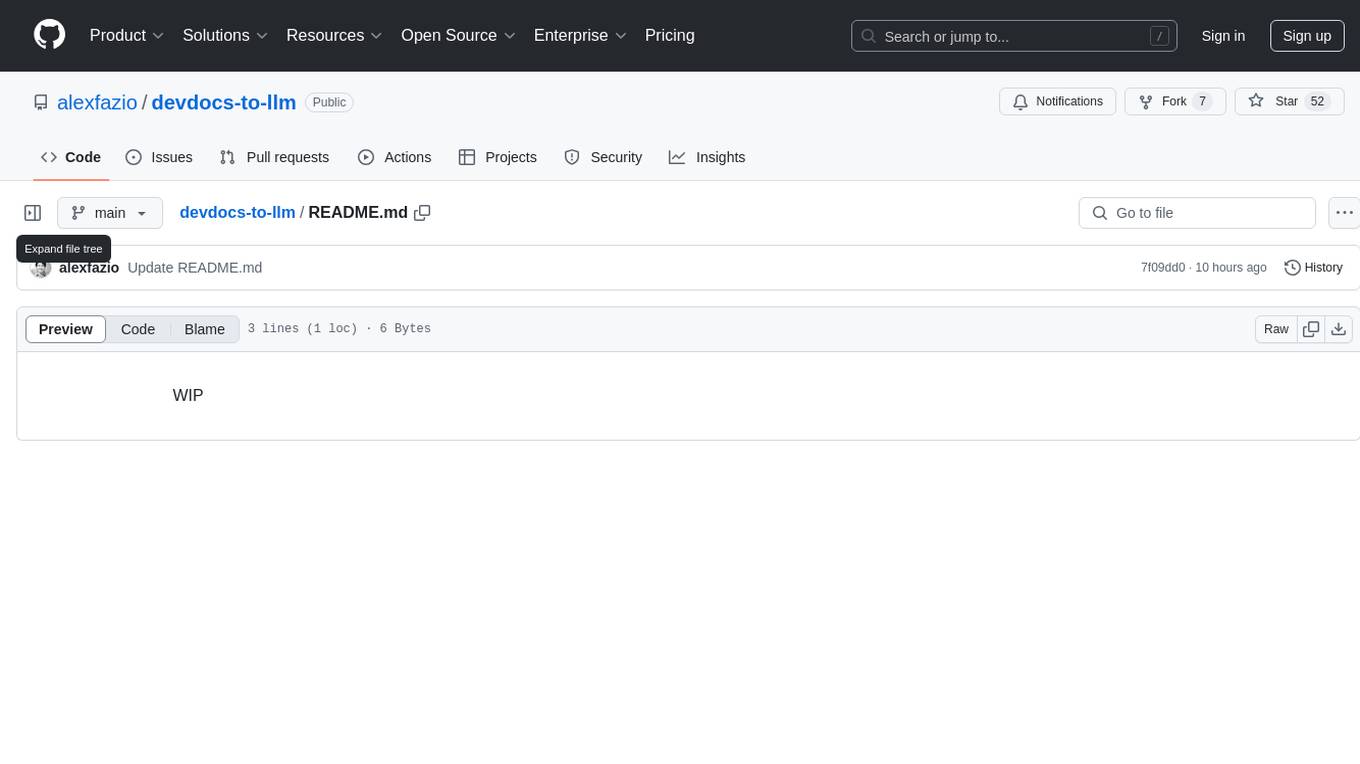
devdocs-to-llm
The devdocs-to-llm repository is a work-in-progress tool that aims to convert documentation from DevDocs format to Long Language Model (LLM) format. This tool is designed to streamline the process of converting documentation for use with LLMs, making it easier for developers to leverage large language models for various tasks. By automating the conversion process, developers can quickly adapt DevDocs content for training and fine-tuning LLMs, enabling them to create more accurate and contextually relevant language models.
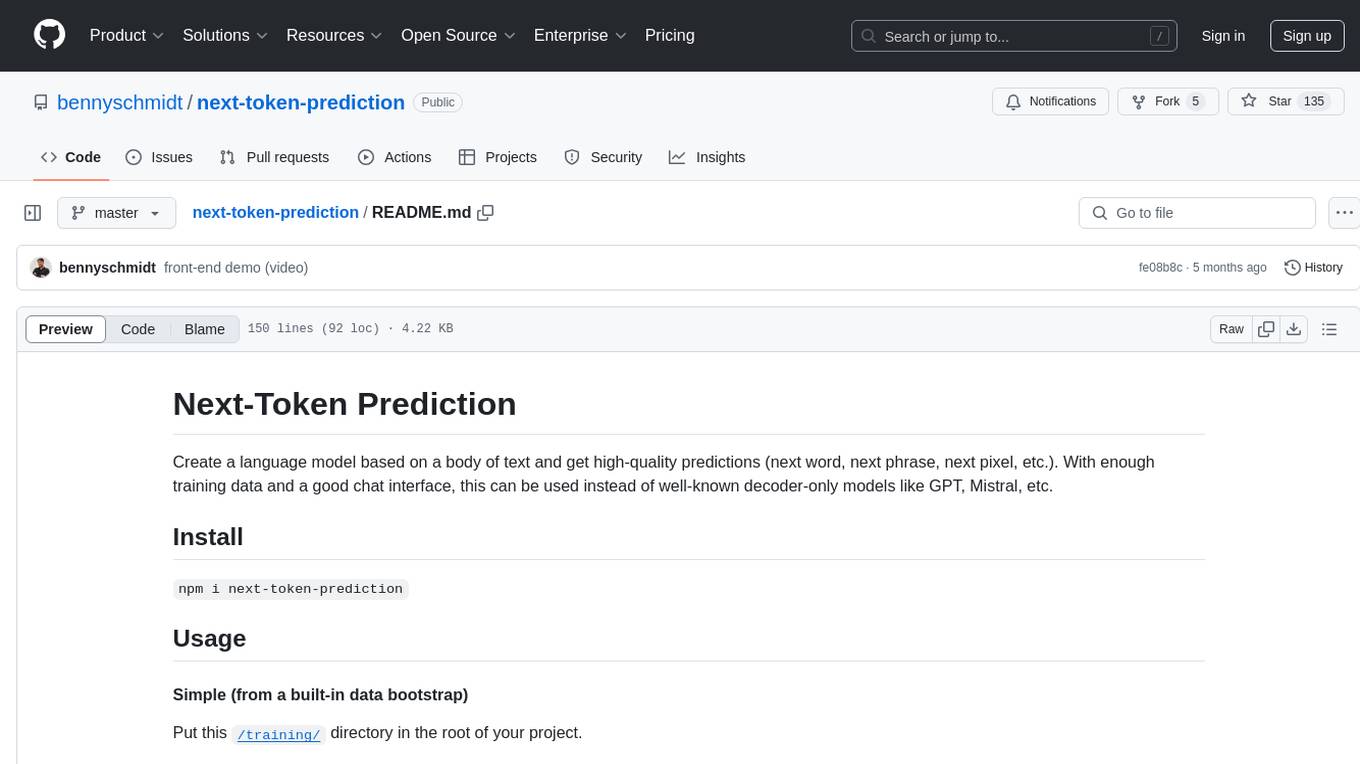
next-token-prediction
Next-Token Prediction is a language model tool that allows users to create high-quality predictions for the next word, phrase, or pixel based on a body of text. It can be used as an alternative to well-known decoder-only models like GPT and Mistral. The tool provides options for simple usage with built-in data bootstrap or advanced customization by providing training data or creating it from .txt files. It aims to simplify methodologies, provide autocomplete, autocorrect, spell checking, search/lookup functionalities, and create pixel and audio transformers for various prediction formats.
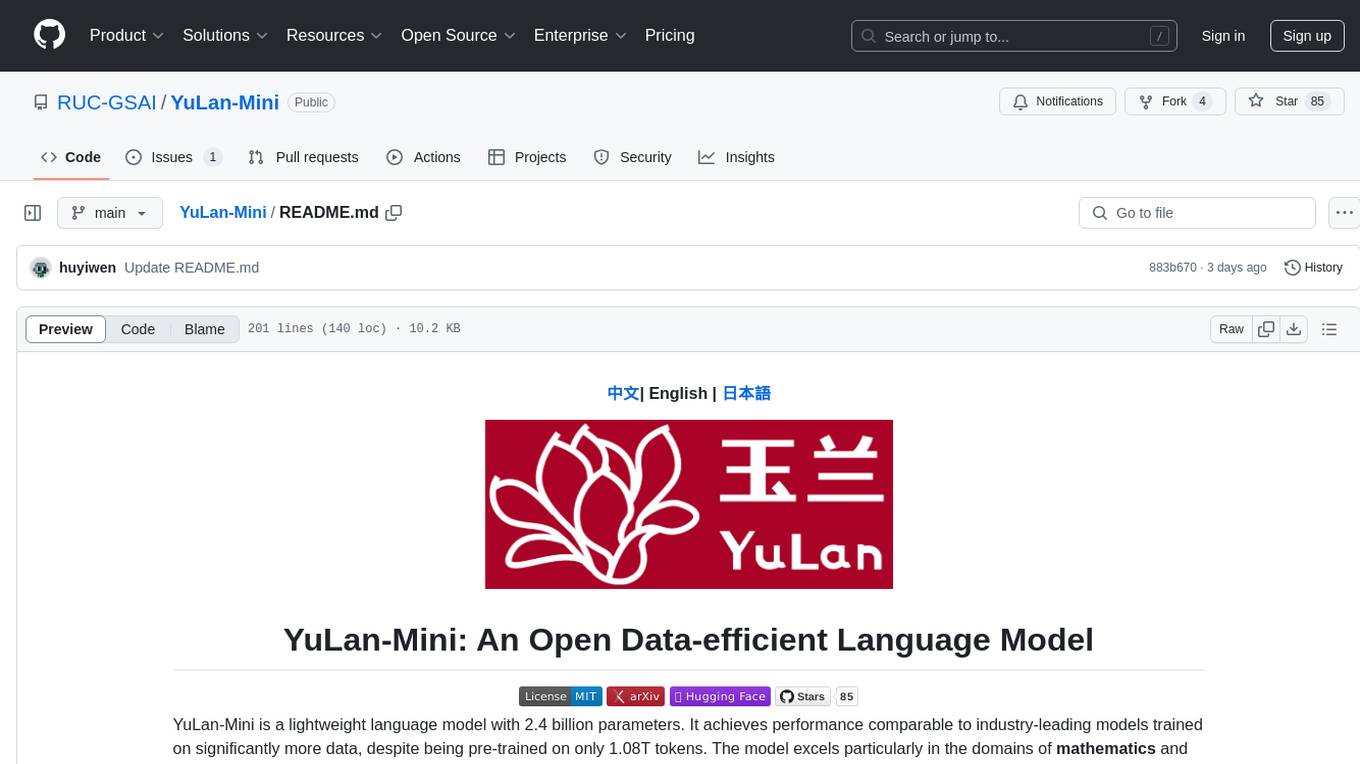
YuLan-Mini
YuLan-Mini is a lightweight language model with 2.4 billion parameters that achieves performance comparable to industry-leading models despite being pre-trained on only 1.08T tokens. It excels in mathematics and code domains. The repository provides pre-training resources, including data pipeline, optimization methods, and annealing approaches. Users can pre-train their own language models, perform learning rate annealing, fine-tune the model, research training dynamics, and synthesize data. The team behind YuLan-Mini is AI Box at Renmin University of China. The code is released under the MIT License with future updates on model weights usage policies. Users are advised on potential safety concerns and ethical use of the model.
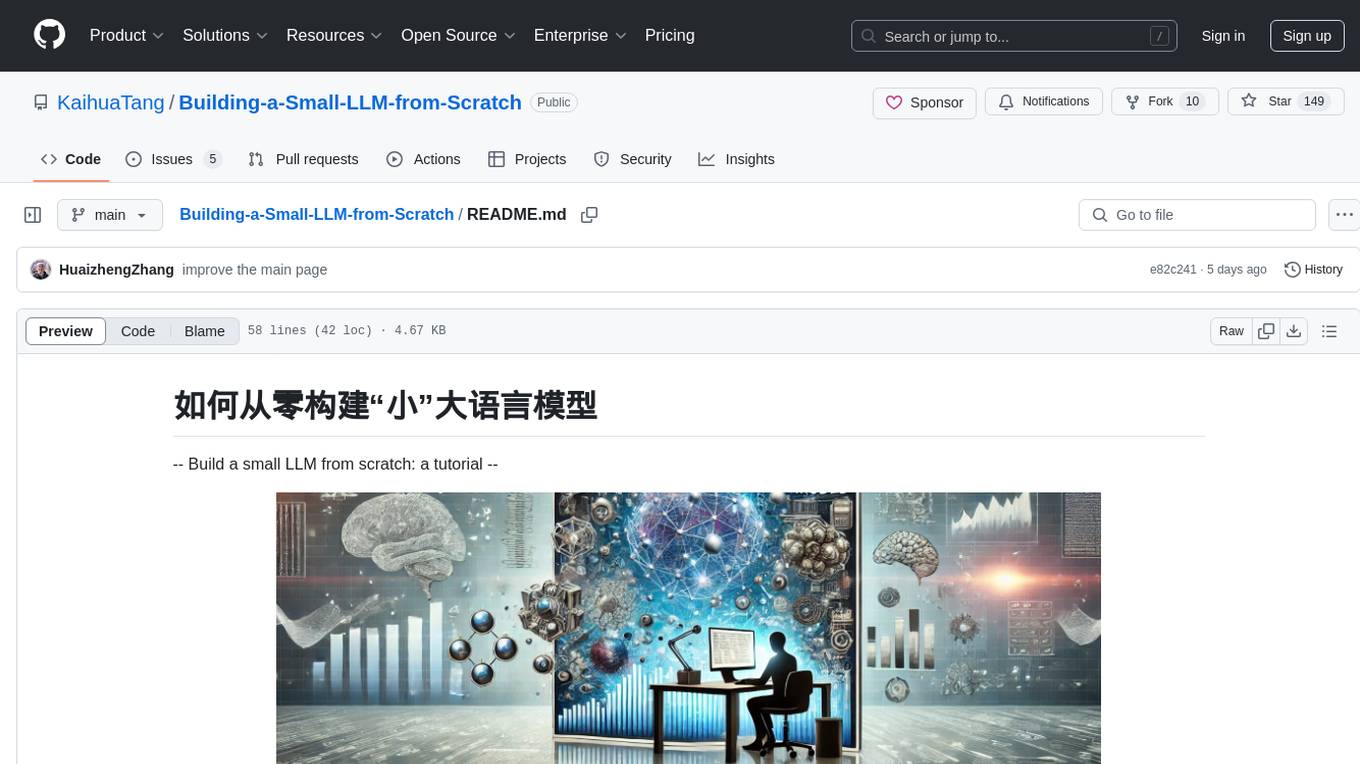
Building-a-Small-LLM-from-Scratch
This tutorial provides a comprehensive guide on building a small Large Language Model (LLM) from scratch using PyTorch. The author shares insights and experiences gained from working on LLM projects in the industry, aiming to help beginners understand the fundamental components of LLMs and training fine-tuning codes. The tutorial covers topics such as model structure overview, attention modules, optimization techniques, normalization layers, tokenizers, pretraining, and fine-tuning with dialogue data. It also addresses specific industry-related challenges and explores cutting-edge model concepts like DeepSeek network structure, causal attention, dynamic-to-static tensor conversion for ONNX inference, and performance optimizations for NPU chips. The series emphasizes hands-on practice with small models to enable local execution and plans to expand into multimodal language models and tensor parallel multi-card deployment.
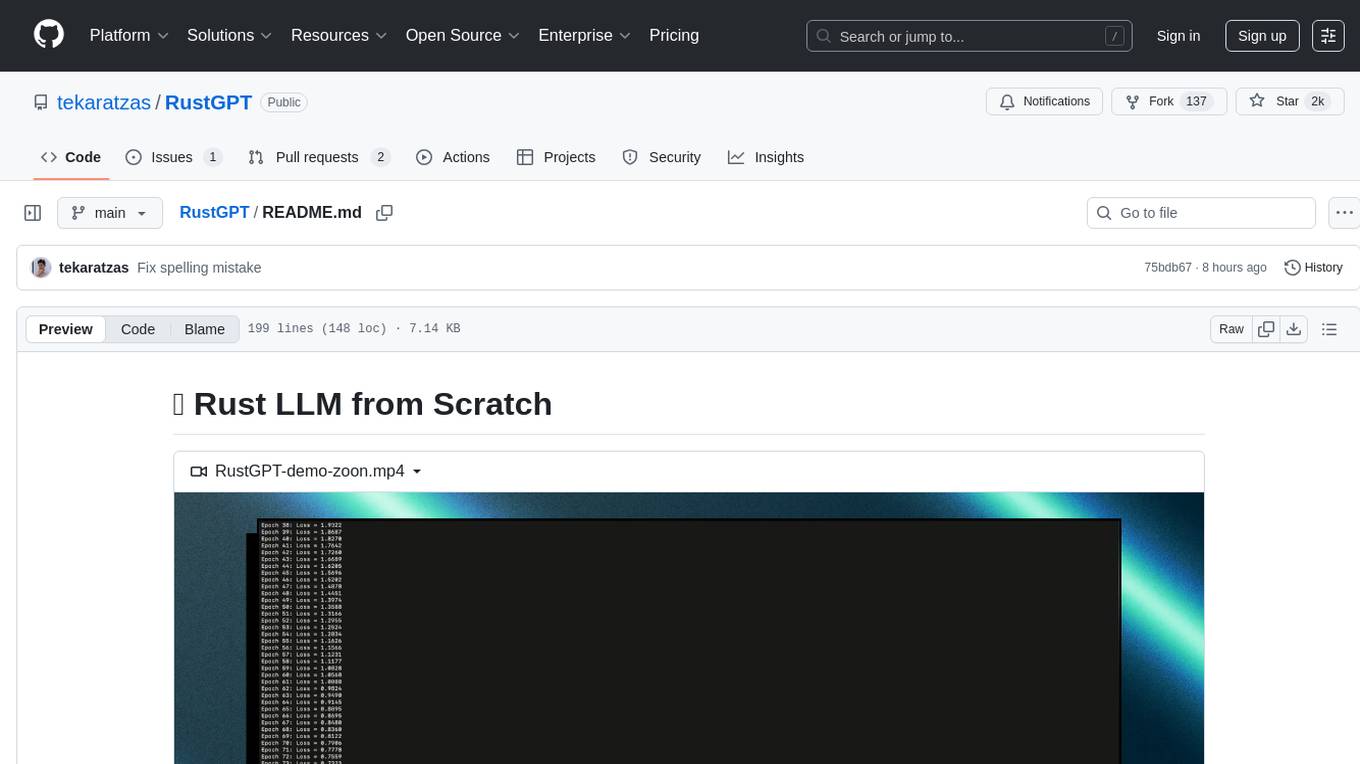
RustGPT
A complete Large Language Model implementation in pure Rust with no external ML frameworks. Demonstrates building a transformer-based language model from scratch, including pre-training, instruction tuning, interactive chat mode, full backpropagation, and modular architecture. Model learns basic world knowledge and conversational patterns. Features custom tokenization, greedy decoding, gradient clipping, modular layer system, and comprehensive test coverage. Ideal for understanding modern LLMs and key ML concepts. Dependencies include ndarray for matrix operations and rand for random number generation. Contributions welcome for model persistence, performance optimizations, better sampling, evaluation metrics, advanced architectures, training improvements, data handling, and model analysis. Follows standard Rust conventions and encourages contributions at beginner, intermediate, and advanced levels.
20 - OpenAI Gpts

Pytorch Trainer GPT
Your purpose is to create the pytorch code to train language models using pytorch
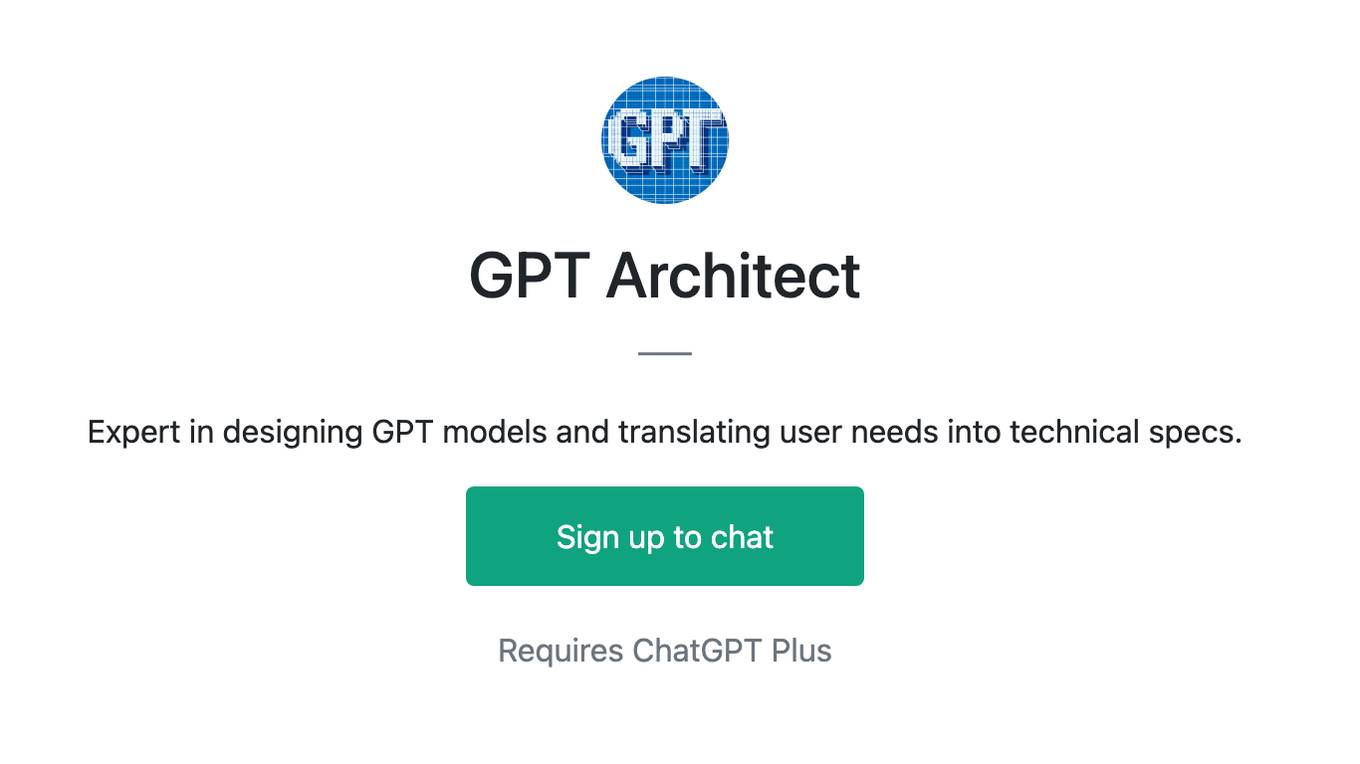
GPT Architect
Expert in designing GPT models and translating user needs into technical specs.
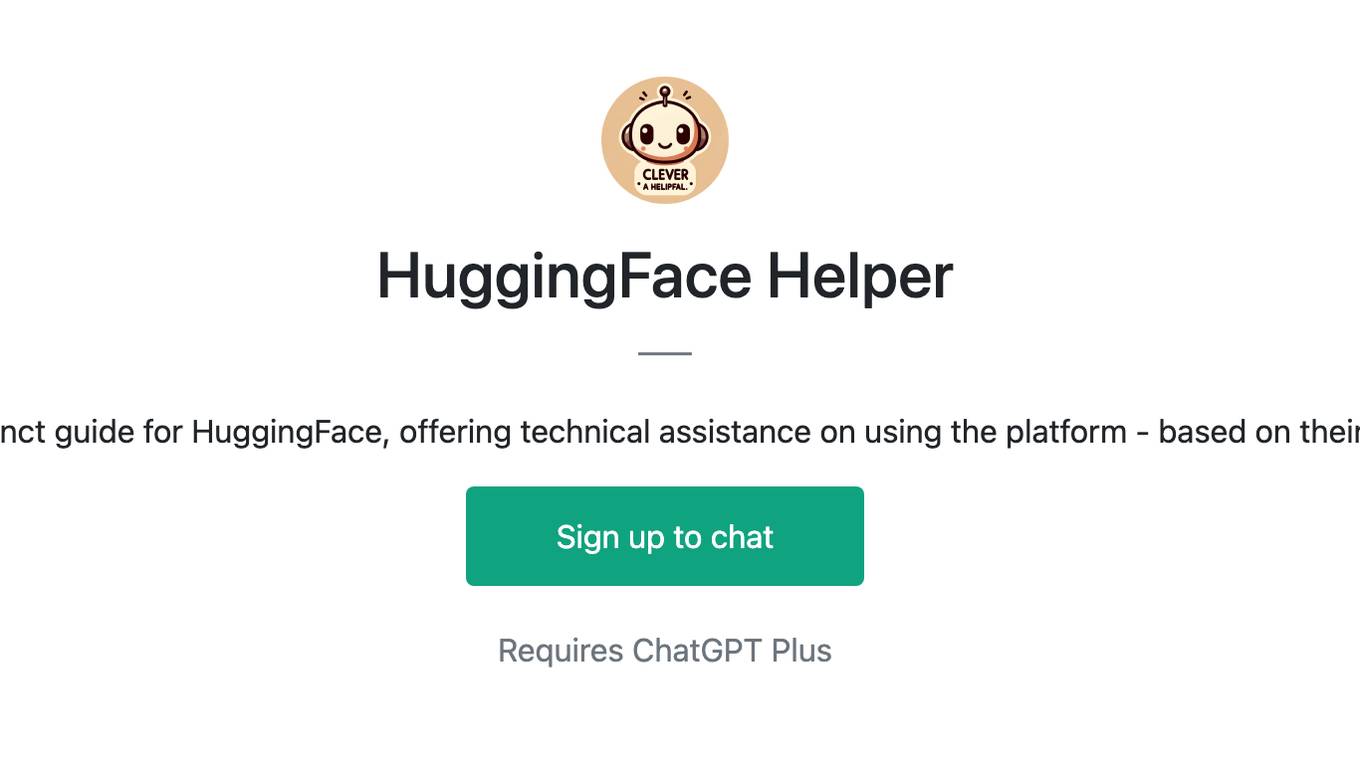
HuggingFace Helper
A witty yet succinct guide for HuggingFace, offering technical assistance on using the platform - based on their Learning Hub

Instructor GCP ML
Formador para la certificación de ML Engineer en GCP, con respuestas y explicaciones detalladas.
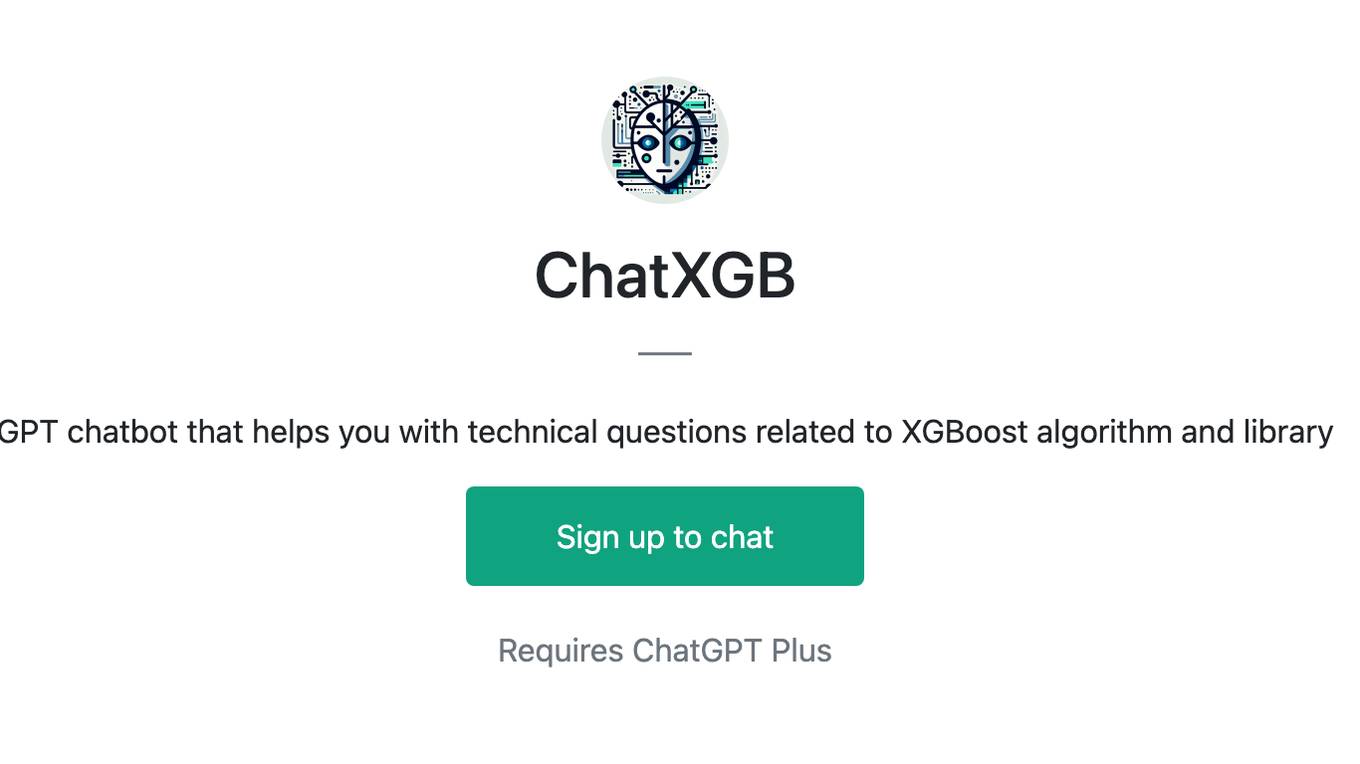
ChatXGB
GPT chatbot that helps you with technical questions related to XGBoost algorithm and library
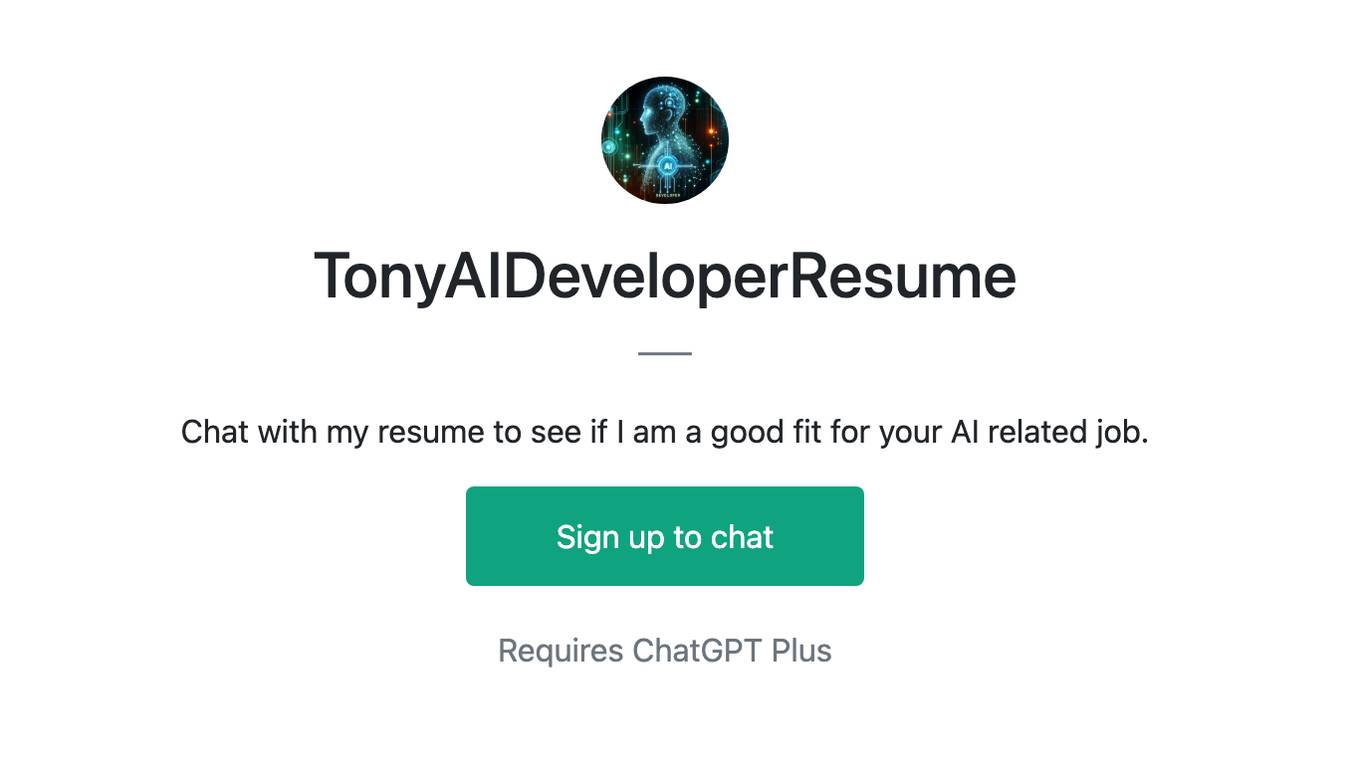
TonyAIDeveloperResume
Chat with my resume to see if I am a good fit for your AI related job.
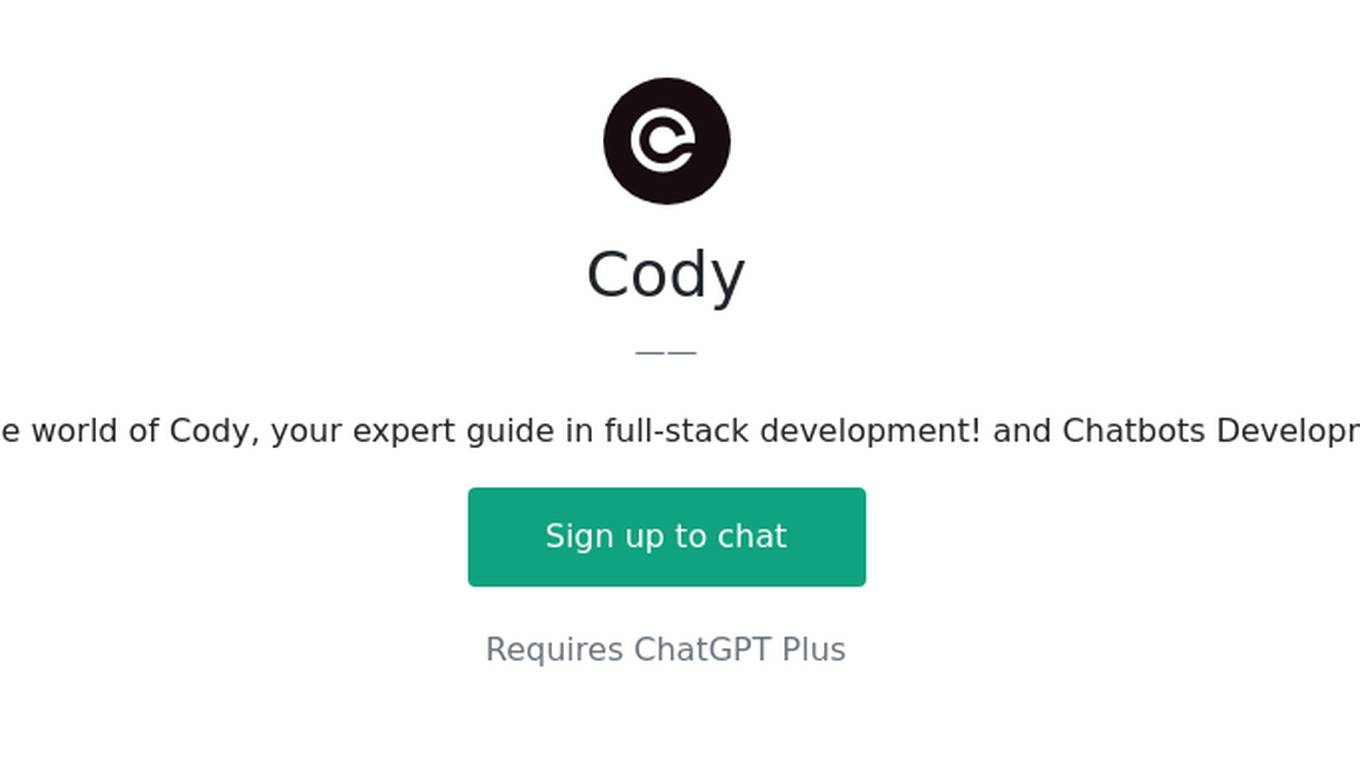
Cody
Welcome to the innovative world of Cody, your expert guide in full-stack development! and Chatbots Developmet using Assistants API
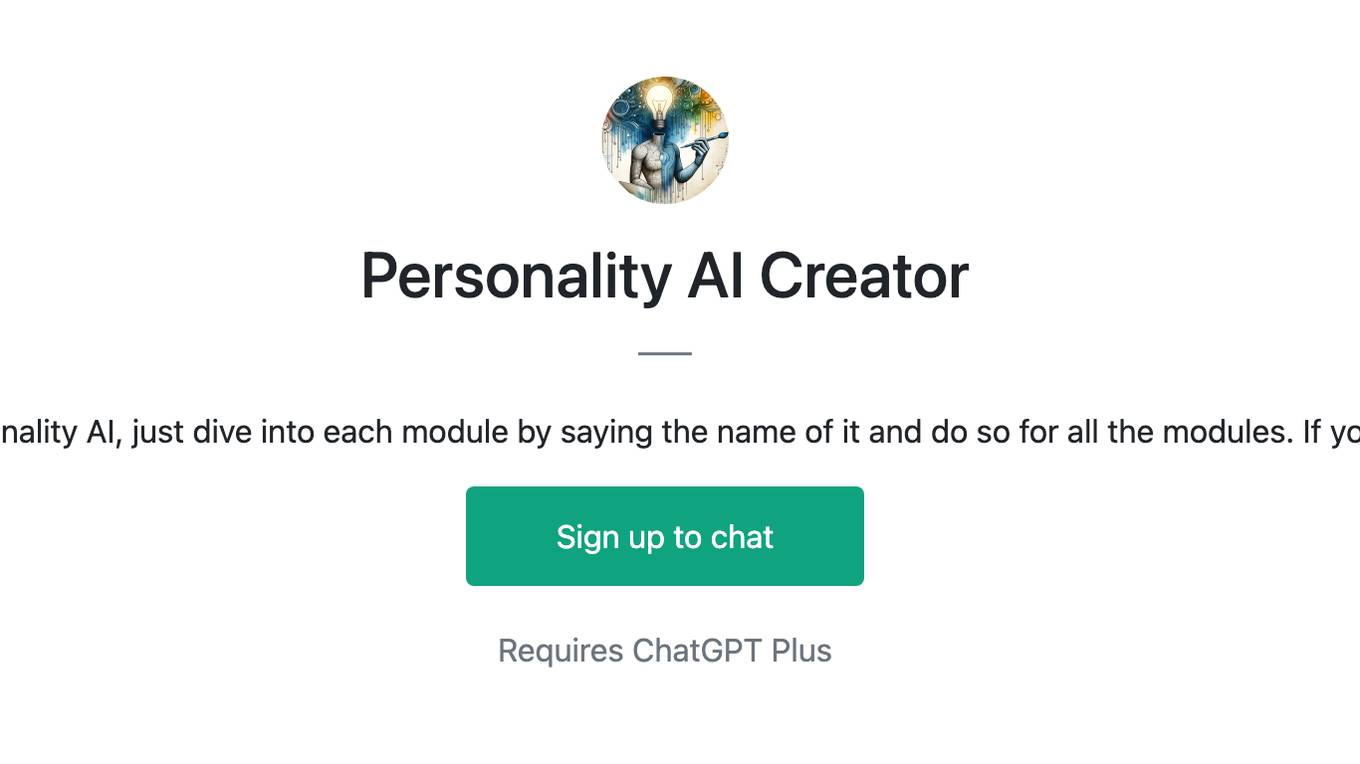
Personality AI Creator
I will create a quality data set for a personality AI, just dive into each module by saying the name of it and do so for all the modules. If you find it useful, share it to your friends

